
Table of Contents
Title Page Foreword 3 Allomancy Lore 3 Class Summary 4 Class Features 6 - Allomantic Metals 9 - Allomantic Specialties 16 DM Extras 22 - Mistings 22 - The Mists 22 - A World With Allomancers 23 - God Metals 23 - Items 25 - Cadmium and Bendalloy: Alternative Temporal Metals 24 - Creating a new Allomantic Power 25 - Hemalurgy 26 - Feruchemy 26 Changelog 29
Foreword
The Allomancer class is a non-traditional spellcasting class that ends up playing like a mix between a martial and magic class, as Allomancers have a limited set of powers (16 in total), a lot of which mess with physics.
On the players side of things, this class requires extensive tracking of metal reserves and a strong understanding of the powers available to them, as the powers rely heavily on how creatively you use them. If you don’t want to think about much you can of course just shoot coins and punch people, but this class excels most when the various pushes and pulls on metals as well as emotions are used creatively to manipulate the environment. And just to stress it again: You need to track a lot of things for this class. You have a lot of separate Save DCs, a lot of varying numbers of charges available and being spent at a time. Not keeping track of these things correctly can lead to you being significantly over or underpowered, and/or wasting a lot of game time.
On the DMs side, it requires a basic understanding of how forces interact and the ability to determine outcomes fairly, quickly and consistently. I’ve included a short list of powers a couple of pages further down that explains all the class features and powers fairly quickly without all the super specific wording for rules lawyers sake so that you don’t have to spend an hour reading this, however I would highly recommend you talk to a player intending on playing this class to see just what they wish to do with it and how you would rule certain scenarios; I’m fairly certain most people would want to play this class for either the momentum or emotional manipulation it is capable of, as well as its other unique mechanics like seeing other creatures past, so it’s important you and the player are on the same page as to how everything will work. I’ve written down a lot of rules and specifics, but even if RAW accounted for everything, different DMs will handle situations differently.
If you’ve not read the books or another Allomancer/Mistborn homebrew, feel free to skip the next bit:
I’ve seen other homebrews based on the mistborn, but didn’t quite like their take on the class; There’s a choice to make between strong class bonuses and class bonuses related to (potentially limitless) material components, both of which are important to the class fantasy. I chose to not add any class features that aren’t about burning metals (such as fighting styles and extra attack) and limit just how much metal Allomancers could use in order to allow their powers to be on a level more similar to that of the books. I also feel like standard class archetypes don’t fit mistborn very well; a mistborn/full allomancers big thing was the diversity of their powers, the ability to use all of them well, so I opted for a system similar to the Warlock’s Eldritch Invocations, allowing the Mistborn to slowly master the metals most useful to him as the campaign progresses, allowing both a focus on multiple metals/”jack of all trades” style as well as focusing on 1-2 metals for a very focused Allomancer (for which standard Archetypes would work). This should allow the player to create a unique “archetype” fitting his character and make each Allomancer unique.
Allomancers
In days long past, the gods Leras, of Preservation, and Ati, of Ruin, fought over this world. They worked together to create it, giving up their bodies for it, on the promise that Ati may Ruin it, but Leras could not stand to see his children wiped out, so he broke his promise and created a plan to stop Ruin.
Leras connected eight metals, and an alloy of each, to the Weave, making them serves as catalysts to powerful magic when ingested. Leras gave his soul to power this magic - Allomancy - Whenever it was invoked, making it strong enough to help mankind resist Ruins schemes. Then Leras gave up his mind to imprison Ruins, and not much was left of the god, just the Mists that covered the world every night to protect and empower the Mistborn - His Allomancers.
Over the ages, Leras’ remaining power faded, and with it Allomancy and the Mists waned. His name, his fight against Ruin, and the metallic art almost forgotten. Allomancy paled in comparison to arcane and divine magics with so little of Leras’ power left to draw on, it almost went extinct as fewer and fewer people practiced it.
Eventually, blood lines overlapped, and people started being born both with Leras’ blessing as well as an innate connection to the Weave, people capable of becoming Sorcerors, Bards, Wizards and the like. But instead of learning how to use their innate magic for spells, they learned how to use it to infuse metals with power, much like Leras used to do, granting them Allomantic abilities comparable to the ancient Mistborn.
Once again Allomancers travel this land, leaping over city skylines through the power of steel, soothing crowds with brass, seeking magic and adventure with bronze, always alert through tin. Bandits that encounter them swept off their feet by their own armor, their weapons flying off into the forest, fear gripping them as the man downs a vial of pewter shavings, ready to beat some heads in with giant’s strength...
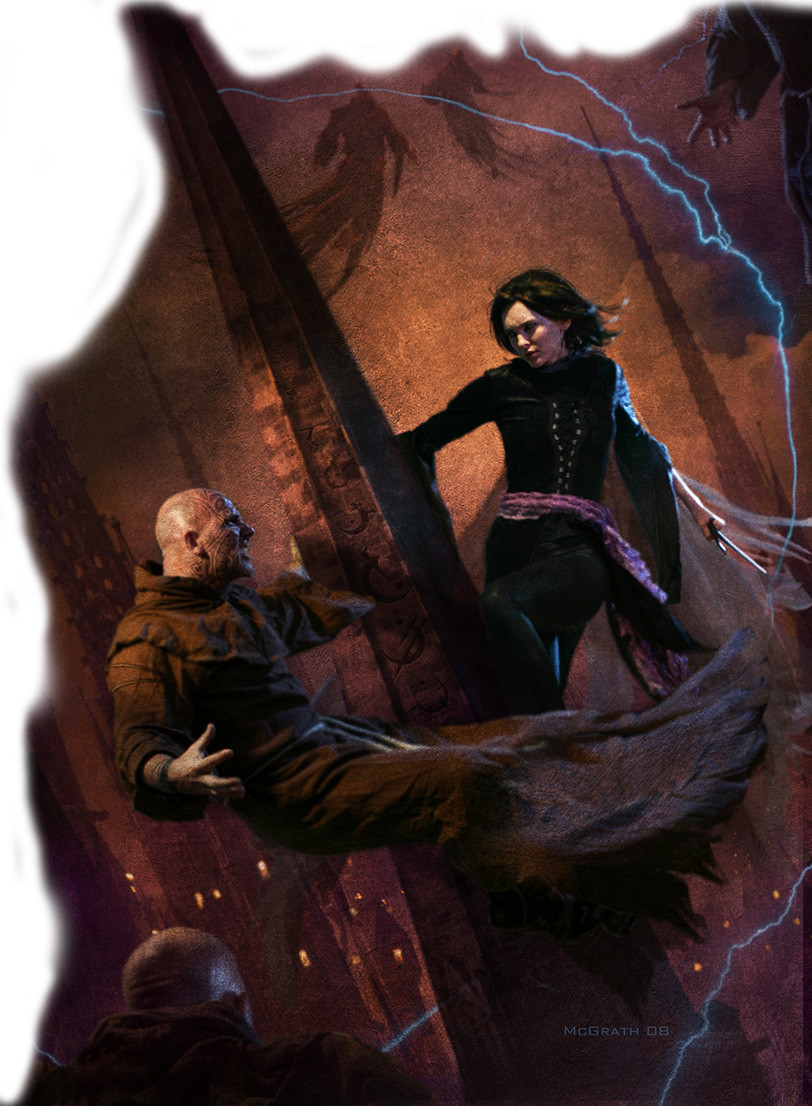
Class Summary
Due to having a lot of unique mechanics, the Allomancer class has a lot of text to convey simple ideas with a lot strict wording to make rulings easier in complicated situations. So I've decided to include a summary of the class for quick reference, and to give readers an idea of what it can before committing to reading the other 20 pages.
Preparing and Burning Metals
Allomancers must empower metals before they are usable, this is done during a rest, and those are then called Allomantic Metals. They can have up to their level of prepared arbitrary units of Allomantic Metal, each unit having a duration/number of uses specific to the metal. They can prepare multiple units of the same metal. Usually roughly the volume of a coin or thumbnail is enough to qualify as a unit of metal. An Allomancer should not have to track his non-currency metal inventory, similar to how a spellcaster would use a component pouch. Allomantic metals are usually kept in powdered form in a vial full of liquid for quick ingesting; The Allomancer should be allowed to drink a single vial on his turn without using any type of action or even their object interaction, similar to how martial classes are allow to draw ammunition as part of their attacks. If the metal is not in “potion” form, feel free to make swallowing it impact the action economy.
- Allomancers prepare maximum metals on a long rest
- Allomancers prepare one quarter of maximum metals on a short rest, rounded up
- Metal vials/”potions” hold up to 10 units of Allomantic Metals
- Metals effects and durations do not have to be consecutive turns; It’s a resource-management intensive class, trust your player to keep track.
Burning a metal is the process of using it’s power; It usually provides a passive effect, and access to active effects. There will be a simplified table below.
Active powers cause the metal to be consumed faster than just burning it for passive effects, so don’t be surprised/suspicious if an Allomancer can hold on to the passive effects for a long time.
Flaring a metal is used to enhance it’s effects, available from level 5 onwards. This usually causes the metal to be consumed significantly faster than normal.
Any number of metals can be burned at the same time, but burning 4 or more causes them to burn faster.
Mistborn
In the books the Allomancers are based on, their powers are related to near-perpetual mists shrouding the world, which are related to the source of allomancy, so Allomancers are given certain bonuses while in clouds of fog, mist or other gasses. You may cut/replace these entirely or modify them to fit your setting; It is meant to be a bit of flavor rather than an actual power increase to the class.
Low Burn
The class uses turn-based durations for the metals to begin with, to ease players into it and also to display their inexperience with their powers. Low Burn makes the powers charged based, generally allowing them to use their powers more efficiently and longer than before, especially if they mainly just want the passive effects.
Flaring
The classes level 5 power spike, flaring a metal involves burning it faster than normal, spending more charges to perform empowered actions. Flaring metals will generally make the metals last significantly shorter than their original pre-Low Burn durations.
Allomantic Specialty
These work similar to Warlock’s Eldritch Invocations, and replace class archetypes for this class. The player can choose to focus heavily on one or two metals, and then pick some additional utility options from other metals to create a unique class archetype and character of their own.
Steelpushing and Ironpulling:
Steel and Iron let an Allomancer see blue lines connected to all source of metal within 120ft, and push or pull on the metal using their own weight. If the target doesn’t move, the force of the push or pull is reflected onto the Allomancer. The force increases until one side moves, potentially causing damage to one or both if they are anchored well (usually repeating 3d6 bludgeoning until one side breaks or the Allomancer gives up). The section on Iron has a very detailed description of how this should work.
Allomancers can become incredibly mobile using Steel and Iron; Mostly by Steelpushing against objects that can’t move, commonly coins dropped on the floor below them, granting them pseudo-flight through careful steelpushes.
Distance objects are pushed/pulled, their damage dice and effective attack ranges based on their weight relative to that of the allomancers:
| Weight | Distance Pulled | Damage | Range |
|---|---|---|---|
| Similar | 30 feet | 2d6 bludgeoning | 10/30 |
| Half | 60 feet | 1d6 bludgeoning | 30/60 |
| <1/10th | Until collision | 1d4 piercing | 80/320 |
If a creature is holding or wearing an object that gets pushed or pulled, it can make a strength saving throw against 8 + proficiency + str mod to hold on to the object/not get moved; The DM can ask for contested strength checks instead. The DM should also grant advantage and disadvantage based on how well a creature can resist the force: Holding on to a sword with 100+lbs pushing against it is significantly harder than using your entire body to work against the force pushing against your breastplate. Consider making creatures automatically fail if they are pushed/pulled away from the ground. Remember that if the target doesn’t move, the allomancer does! Describe it as the Allomancer losing his footing/grip on his anchor if needed.
The Most Important thing: Metals
The metal descriptions are quite wordy to establish clear rules on their mechanics, a lot of the mechanics could be shortened into “common sense”, which is what this table is for. There is an extra section above for quick references for Iron and Steel.
Metal Table
| Metal | Passive Effect | Active Effect | Flare |
|---|---|---|---|
| Iron | Metalsense, 120ft (blue lines) | Pull Metals | Additional Pull |
| Steel | Metalsense, 120ft (blue lines) | Push Metals | Additional Push |
| Tin | Enhanced senses, thunder/blind/deafen vulnerabilities via sensory overload | Bonus Action perception and Investigation | Perception check with a large bonus |
| Pewter | Enhanced physical abilities, similar to barbarian rage. Damage reduction, increased STR and CON. Can fall unconscious from losing the hp from the con bonus when pewter runs out. Advantage on str checks. | Performing actions using the enhanced abilities. Bonus action dash or unarmed attack | Extra Attack or double dash |
| Copper | Hides magic in a 10ft radius, protects self from mental effects | Extend Range to 30ft | Dispel Supressed effects, proficiency in INT and CHA saves |
| Bronze | Similar to detect magic, but see and hear pulses/vibrations/”drumbeats” instead of auras. 60ft range | Bonus Action advantage vs magic saves / spell attacks have disadvantage | 300ft range for 1 min, can use action to check if source is permanent or spell |
| Zinc | Riot (enhance) creatures emotions | PC describes how they manipulate emotions to give adv. or disadv. on social ability checks. Can influence 15ft radius | Frighten or Charm creatures |
| Brass | Soothe (dampen) creature emotions | Same as Zinc. They can affect a single target without using their action. | Calm Emotions spell, supress fright/charm |
| Gold | See images of past and/or alternate selves. 10 min trance. | Traumatic, broken vision if touched | ─ |
| Platinum | See images of immediate future of all other objects and creatures; Permanent dodge action. Doesn’t work vs. creatures that can also tell the future as they spawn infinite images (Does not impede vision) | Gain an additional reaction, can use reactions like Haste actions or to guarantee a hit or miss (Attacks by or against the allomancer) | ─ |
| Electrum | See image of your immediate future (~1s) | ─ | ─ |
| Malatium | Gold but targetting other creatures | ─ | ─ |
| Aluminum | Destroy all ingested metals and temporary magic effects affecting self | ─ | ─ |
| Duralumin | Use up all remaining charges of other active metals, check duralumin entry for details. | ─ | ─ |
| Chromium | ─ | Touch range Dispel Magic/Counterspell | ─ |
| Nicrosil | ─ | Touch a creature to force it to spend an extra spell slot on the next spell cast, increasing the spell level (can go past 9). Touching an Allomancer is the same as him burning Duralumin | ─ |
The Allomancer
| Level | Proficiency Bonus | Features | Metals Known | Allomantic Specialties |
|---|---|---|---|---|
| 1st | +2 | Preparing and Burning Metals | 2 | - |
| 2nd | +2 | Mistborn | 4 | - |
| 3rd | +2 | Low Burn, Allomantic Specialty | 6 | 1 |
| 4th | +2 | Ability Score Improvement | 8 | 2 |
| 5th | +3 | Flaring, Rust and Ruin (d6) | 8 | 2 |
| 6th | +3 | Gold | 9 | 3 |
| 7th | +3 | Platinum | 10 | 3 |
| 8th | +3 | Malatium, Ability Score Improvement | 11 | 4 |
| 9th | +4 | Electrum | 12 | 4 |
| 10th | +4 | Aluminum | 13 | 5 |
| 11th | +4 | Duralumin, Rust and Ruin (d8) | 14 | 6 |
| 12th | +4 | Ability Score Improvement | 14 | 6 |
| 13th | +5 | Chromium | 15 | 6 |
| 14th | +5 | - | 15 | 7 |
| 15th | +5 | Nicrosil | 16 | 7 |
| 16th | +5 | Ability Score Improvement | 16 | 7 |
| 17th | +6 | Rust and Ruin (d10) | 16 | 8 |
| 18th | +6 | - | 16 | 9 |
| 19th | +6 | Ability Score Improvement | 16 | 9 |
| 20th | +6 | True Mistborn | 16 | 10 |
Cost of Allomancy
Allomancy requires unspecified, small amounts of metal, so I would recommend not forcing an Allomancer to spend their hard earned money on pieces of metal and tracking exact amounts, similar to how spellcasters get to use Component Pouches. Metals that currencies are made of, such as gold and platinum, I would recommend requiring one coin of that type for one unit of Allomantic metal.
Class Features
As an allomancer, you gain the following class features.
Hit Points
Hit Dice: 1d6 per Allomancer level Hit Points at 1st Level: 6 + your Constitution modifier Hit Points at Higher Levels: 1d6 (or 5) + your Constitution modifier per Allomancer level after 1st
Proficiencies
Armor: Light Armor, medium armor, shields Weapons: Simple weapons, all types of crossbows, two martial weapons of your choice, improvised weapons manipulated by your allomancy Tools: Metallurgist’s Tools (special combination of Alchemist’s, Jeweler's and Blacksmith's Tools) Saving Throws: Dexterity and Strength Skills: Choose any three skills.
Equipment
You start with the following equipment:
- (a) Leather Armor, (b) Chain Shirt or (c) Scale Mail
- (a) a weapon you are proficient with and a shield or (b) two weapons you are proficient with
- (a) a dungeoneer’s pack, (b) an explorer’s pack or (c) a scholar’s pack
- One piece of any number of the eight base metals in any form you choose; A bead bracelet, rings or other jewelry. You have some knowledge of the metals, but not necessarily their effect. This can be memorized knowledge or something physical like a notebook.
- A set of crystal vials and a box or pouch full of metal shavings of the 8 base metals (Physical and Mental groups) which can be restocked at negligible costs (Like a spellcasters Component Pouch)
- Metallurgist's Tools (8 lbs)

Preparing Metals
Allomancy is the art of infusing metals with magic in order to activate their innate powers, then “burning” those metals to use that power yourself.
At first level you begin with knowledge of one pair of the eight basic allomantic metals: Iron and Steel, Tin and Pewter, Zinc and Brass or Copper and Bronze. You unlock an additional pair every time you gain an Allomancer level, until you know all eight basic metals at 4th level. You unlock additional metals that are not part of the Basic Metals at the levels they are listed at in the class feature table.
During a Long Rest you infuse known metals with magic, up to one unit of metal per Allomancer level. A magically infused metal ready to be used by your other class features is called an Allomantic Metal. The amount of metal needed is fairly small, a coin or a piece of jewellry such as a ring or earring of said metal is usually enough.
If any ingested metals remain in your body for over 12 hours, you are poisoned for 1d4 days, as the metals will not pass out of your body normally.
You may prepare additional allomantic metals during a short rest, equal to one quarter of your allomancy level, rounded up. The amount of Allomantic Metals you have available to you cannot surpass your Allomancer level, this includes metals that you currently have ingested. (You may of course burn those during the short rest to make room for new metals)
Burning Metals
After ingesting an allomantic metal, it stays in your stomach and you can feel its power. You may choose to Burn a metal, activating it until the start of your next turn, when you can choose to either keep burning it or extinguish it.
The effects and durations of metals are going to be listed at the end of this document. All metals have a passive effect while it is being burned, and most have additional active effects an Allomancer can choose to use.
You decide whether or not to burn metals at any point during your turn, and if you make a reaction that requires a metal or would be affected by a metals powers (Such as Pewter enhancing an Attack of Opportunity) you may start burning that metal as part of your reaction.
Whenever you start burning a metal, and at the start of your turn for every metal you choose to keep burning, you gain the metals passive effects until the start of your next turn (Unless the metal says otherwise) and should note down that you have expended one round of the metal. Until you get the Low Burn class feature, your metal reserves are measured in the number of rounds they can be active, and during those rounds you may use any actions related to it.
You may choose to stop burning a metal at any point, even during another creature's turn. Doing so still counts as using an entire round of the metal. (Or charge, after gaining Low Burn)
“Burning” an allomantic metal is not the same as burning a flammable object; No flame is created inside of you, it does not cause any pain or discomfort, yet Allomancers feel like it is an appropriate name for the process, as Allomancers that have not heard the term before instantly know what is meant by it when used in the context of allomancy.
Mistborn
You’ve always had a connection to mists, fog and similar phenomena, especially unnatural ones. Just how much Allomancy and mists are related, and more importantly how much your character knows about the connection depends on the setting and your DM. The first Allomancers were given their powers by a mist-creature, and since then it has been hereditary, so most Allomancers may not understand their connection to the mists.
Starting at 2nd level you feel a lot calmer and safer in fog, mists, gas clouds and similar effects, granting you the following benefits:
- Fog or mists cannot cause you to become lost while travelling.
- You can always see at least up to five feet away from you, even if the cloud obscures vision, as long as you are not blinded.
- Any effects that would cause you to be Frightened or Charmed are suppressed while in such a cloud, as it grants you unnatural calmness and a feeling of safety.
- While burning Tin, mists, fogs and other gasses become translucent to you in a 60 foot radius, allowing you to see normally.
- The clouds can part for you, allowing you and any creatures completely in your square to avoid cloud/fog/mist related negative effects, such as those of the Stinking Cloud spell.
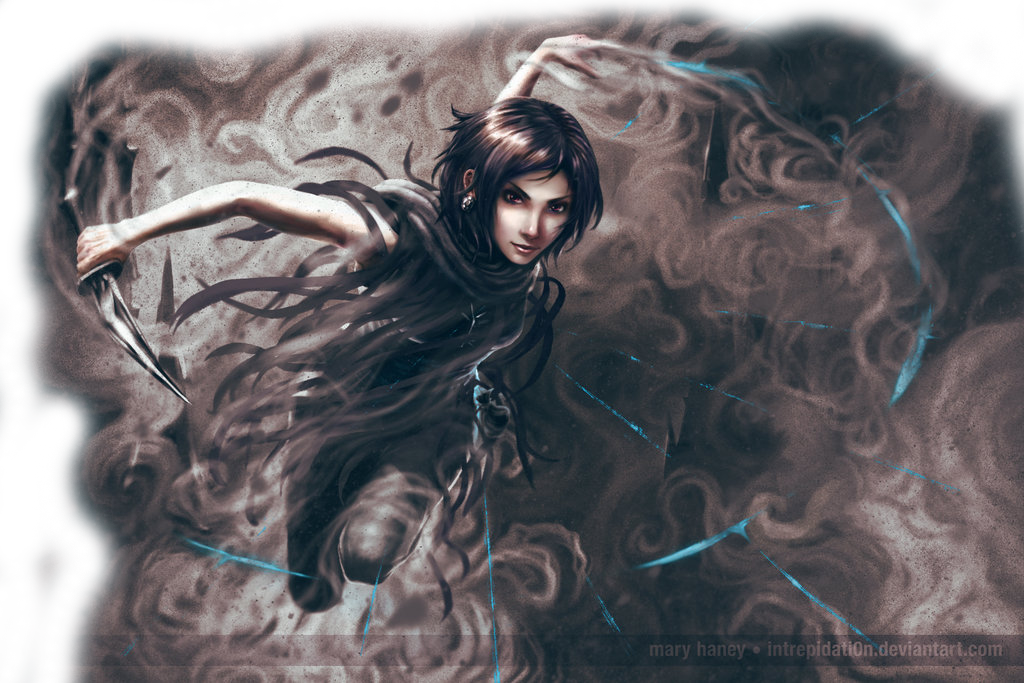
Quick Build
If you want to play a melee Allomancer choose Strength and Constitution as your highest ability scores, Pewter and Tin as your starting metals, and Pewter based Allomantic Specialties starting at level 3.
To play a ranged Allomancer, choose Dexterity and Strength as your highest ability scores, Iron and Steel as your starting metals, and the Quick Iron and Steel Allomantic Specialty at level 3.
To play a mental Allomancer, choose Charisma and either Dexterity or Constitution as your highest ability scores, and the Mind-Rend Allomantic Specialty at level 3. You do not have a damaging mental ability before then, so you will have to either use Steel, Crossbows or Pewter+Melee until then. Zinc and Brass are your primary metals afterwards.
Low Burn
You’ve gained finer control over burning your metals, allowing you to burn your metals slower than you did before while still maintaining their passive effects, and burn them at the normal rate to make use of their active effects.
Your Allomantic Metal reserves are now measured in charges instead of rounds, as written in the metals description. Burning always requires at least one charge, granting you its passive effects until the start of your next turn (unless you extinguish it earlier than that), with some exceptions, listed under their respective metals. Using a metals active effect always requires the use of an additional charge while the metal is burning, unless the metal states otherwise. (So in order to make a Pewter empowered attack, you must first expend a charge to gain Pewters passive effects, then an additional charge for every weapon attack you make)
Burning 4 or more metals in one round makes it difficult to keep this efficiency, requiring you to spend an additional charge of metal anytime you spend any charges (including activating each of the 4+ metals. Flares that require multiple charges only need 1 additional one, not double)
Burning Unknown Metals
An Allomancer can only prepare known metals, but burn any Allomantic Metals he comes across, such as metals given to him by a higher level Allomancer or empowered by nature or some powerful entity.
Allomantic Specialty
Unlike most other classes, Allomancers true strength lies in (technically, Pewter) their very diverse set of powers. While Allomancers will end up favoring certain metals over others, they all end up mastering more than just a single metal eventually, and due to the many possible combinations it is impossible to group them into strict archetypes like with other classes.
Allomancers instead practice for and learn more advanced uses of metals called “Allomantic Specialties”. You may choose one Allomantic Specialty you meet the requirements for from the list further down, and you learn additional ones as you continue levelling up. The class feature table shows when you gain new Allomantic Specialties.
Ability Score Improvement
When you reach 4th level, and again at 8th, 12th, 16th, and 19th level, you can increase one ability score of your choice by 2, or you can increase two ability scores of your choice by I. As normal, you can't increase an ability score above 20 using this feature.
Rust and Ruin
Starting at 5th level your experience with allomancy grants you an Allomancy Die, which starts as a d6.
Whenever you make a strength weapon attack while burning Pewter, or make attacks using Ironpulls or Steelpushes, you may use your Allomancy Die instead of the normal damage dice.
The Allomancy Die increases to a d8 at 11th level, and to a d10 at 17th level.
True Mistborn
You have mastered the art of unlocking a metals potential, allowing you to burn a single metal at a time which has not been prepared, infusing it with the required energy as you’re burning it.
Metalsense
Iron and Steel grant Metalsense. The Allomancer sees translucent blue allomantic lines going from the center of his chest towards every metallic object within range, the thickness of the line being proportional to the size of the object. Metals that are embedded in a living creatures body, such as earrings or swallowed objects, are not detected by metalsense.
The allomancer can see the lines even with his eyes closed or while blinded. The lines do not obscure the Allomancers vision if there are a lot of them as he can see through them without any problems. A sudden burst of powdered metal being thrown into the wind may still surprise and momentarily confuse the Allomancer with the massive amount of lines spreading out so quickly.
Allomantic Metals
Base Metals
The base metals are the first 8 metals all Allomancers discover and the core of their power and versatility.

Iron
External Physical Pulling Metal
Duration: 10 rounds / 20 charges
Passive Effect: Iron grants Metalsense out to 120 feet.
Active Effect: Ironpull
You may use your Action to mentally pull on any allomantic lines you see through your Metalsense, pulling the metallic object directly towards you with force equal to your weight. The objects own weight pulls on you as well; You can easily resist the counter-pull of objects of similar or lesser weight than yourself and remain in place, but if the object is significantly heavier you get pulled towards it instead.
If both the allomancer and the pulled object don't get moved, the force of the pull increases again by the allomancer's weight on both sides, and keeps increasing this way until one end of the pull moves or the allomancer cancels the pull. This escalation takes less than a second and may cause the allomancer and/or pulled object take 3d6 damage Bludgeoning damage as they are crushed against whatever is preventing them from moving.
Allomancers may willingly choose to escalate the pull to or even past this point, at which point the DM may choose to allow the Allomancer to make a Strength Saving Throw to reduce the damage, and/or further reduce the damage by any preparations the Allomancer made, such as using some softer padding between himself and the object preventing him from being pulled, or burning Pewter.
The pulls strength will never increase after one side moves.
When determining whether a push or pull would deal damage to the Allomancer or object, compare it to the amount of weight they can push/pull/lift, which is normally 30 x their Strength Score. If the force of the push or pull exceeds that number they take damage. I would recommend an additional 3d6 for each time the push strength exceeds the Allomancers lifting limit by his own weight.
The DM should decide on an upper limit of a single push or pull, I would recommend 10x the Allomancer's weight. If the Allomancer has access to class features such as Flaring that allow multiple pushes or pulls in a single turn, he may expend them into one to raise the upper limit of a single push or pull. This way more metal has to expended to achieve incredibly powerful (and potentially suicidal) pushes and pulls.
If the Allomancer is expecting the push or pull to get to damaging levels, he should be allowed to cancel it before it gets to that point.
The table below shows how far objects and creatures will travel when pulled, effective attack range, and their damage dice if they hit something, based on their weight relative to the allomancers.
If the objects path crosses a creatures space, the allomancer may make an ranged weapon attack. The object is considered an improvised magical weapon, and the allomancer is considered to be proficient with it.
| Weight | Distance Pulled | Damage | Range |
|---|---|---|---|
| Similar | 30 feet | 2d6 bludgeoning | 10/30 |
| Half | 60 feet | 1d6 bludgeoning | 30/60 |
| <1/10th | Until collision | 1d4 piercing | 80/320 |
If you Ironpull an object that is being worn or held by a creature, the creature must make a Strength Saving Throw against (8 + Your Proficiency Modifier + Your Strength Modifier). The DM must judge how well a creature can resist the pull, if at all.
If the object can be dropped or torn off, the creature should have disadvantage on the saving throw and lose grip of it on a failure, making the object get pulled half the normal distance closer to you. If the creature is significantly lighter than the Allomancer, the DM may rule that on a successful saving throw the creature holds on to the object but gets pulled towards the Allomancer.
If the creature resisting the pull is significantly heavier than the Allomancer, the DM may let it roll the saving throw with advantage
In some cases, creatures may not be capable of resisting the pull, the most common such situation being if they get pulled upwards and don’t have anything to hold onto or push against; In such situations the creature automatically fails the saving throw and gets pulled.
If the pull succeeds, the creature or object move following the same rules listed for uncontested pulls above, based on their relative weight.
The Allomancer may get pulled towards a creature that resists his Ironpulls. Usually Allomancers are skilled enough to end the pull before they move more than a few feet. If the DM feels the Allomancer was unprepared for the consequences of failure, the allomancer will get pulled the maximum distance (30 feet).
Objects or creatures pulled away from gravity begin to fall at the start of their own turn, or the allomancers turn if they are not part of the initiative order, unless the allomancer chooses to keep using ironpulls and steelpushes on the object or creature immediately at the start of his turn.
Flare: You may Flare your iron on your turn when you use your action to Ironpull a single object, expending an additional charge, allowing you to make an additional Ironpull before the end of your turn.

Steel
External Physical Pushing Metal
Duration: 10 rounds / 20 charges
Passive Effect: Steel grants Metalsense up to 120 feet.
Active Effect: Steelpush
Steelpushing works like Ironpulling, except the Allomancer and Steelpushed object attempt to move away from each other, instead of towards each other.
Flare: You may Flare your steel when you use your action to Steelpush a single object, expending an additional charge allowing you to make an additional Steelpush before the end of your turn.
Steelpushing Tricks
The allomancer may intentionally push on an object that he cannot move in order to push himself away from it, such as pushing away from a building by pushing on metal hinges in doors and windows, or pushing against a coin the Allomancer dropped below himself order to launch himself 30 feet into the air. The allomancer doesn't begin to fall until the start of his next turn, at which point he can choose to continue pushing himself away from the floor, resulting in a strange form of flight.
The Allomancer may Steelpush objects in order to make improvised Ranged Weapon Attacks, similar to how he would do it by Ironpulling, except it is significantly easier to set up pushing a coin out of your hand towards an enemy than finding a loose metal object that just happens behind your enemy.
Steelpushing weapons out of the hands of your enemies is significantly safer than ironpulling them, since you won't be in their trajectory. Discuss with your DM whether disarming is allowed, as 5th edition does not have a lot of rules regarding it.
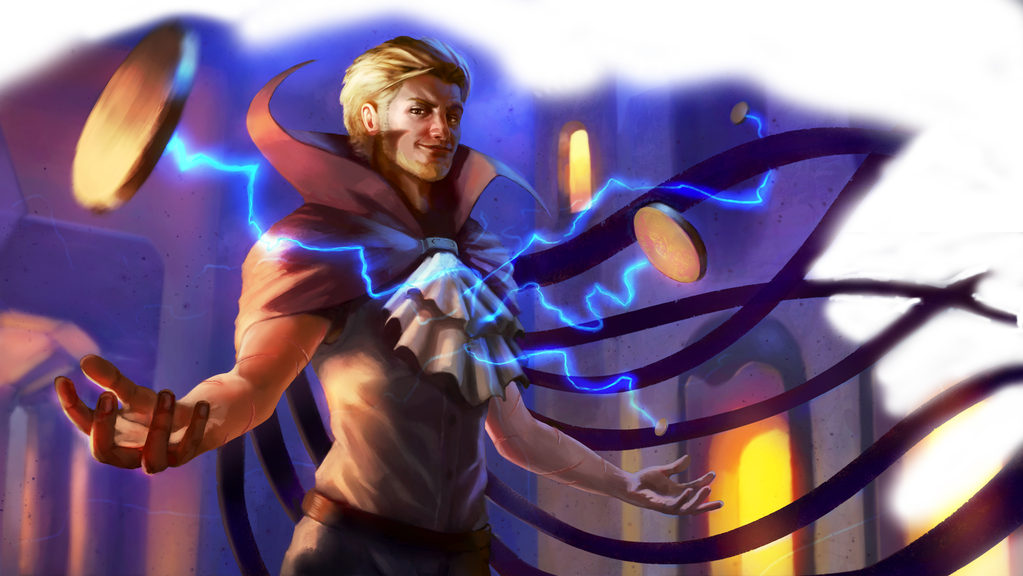

Tin
Internal Physical Pulling metal
Duration: 10 minutes / 10 charges.
One charge grants the passive effect for a minute (10 turns)
Passive Effect: Enhances the Allomancer’s mental abilities, amplifying their senses and ability to process information.
- Gain darkvision out to 60 feet, or an additional 60 feet if you already have darkvision.
- Gain blindsight out to 10 feet, or an additional 10 feet if you already have blindsight.
- You gain advantage on all Wisdom(Perception) checks and Intelligence(Investigation) checks.
- You gain vulnerability to Thunder damage. Effects that deal Thunder damage in an area can damage you at up to twice their normal radius (You still make any related saving throws). No other related effects extend past the normal radius/area, and you take half damage from any effects that damage you outside of their normal radius/area.
- Failing a saving throw against an effect that deals Thunder damage stuns you until the end of your next turn, and you are deafened until you succeed on a DC 10 constitution saving throw you make at the end of your turns.
- You make saving throws against effects that would blind or deafen you through physical means (Such as bright light or loud sounds, even if created by magic) with disadvantage. This does not apply to effects that would deafen as a side effect of taking thunder damage with tin-enhanced hearing.
Active Effect: You may make perception and investigation checks as a bonus action instead of action. This does not consume additional charges.
Flare: You may Flare your Tin, expending an additional charge and making a Wisdom(Perception) as an Action.
In addition to all passive bonuses Tin grants your Perception checks, you now also add your proficiency bonus to your perception checks until the start of your next turn. This stacks with all other effects that would add your proficiency bonus to your perception rolls, allowing you to add your proficiency bonus an additional time.
You cannot make additional checks as Bonus Actions while under this effect.
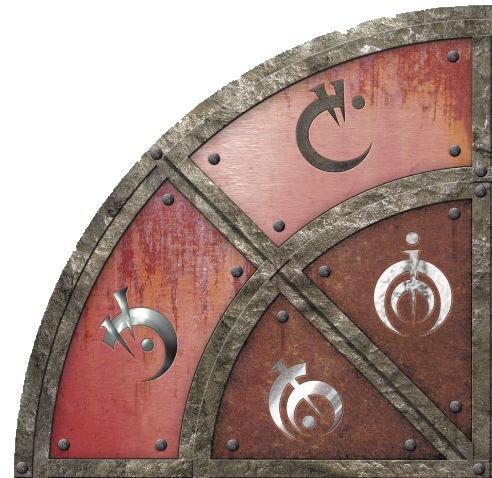

Pewter
Internal Physical Pushing metal
Duration: 5 rounds / 10 charges
Passive Effect: Pewter greatly enhances the Allomancer’s physical abilities
- Increase your current and maximum Strength and Constitution scores by 5. Any health gained by this is lost when Pewter is extinguished; if this would knock you unconscious, you make your death saving throws with advantage until you stabilise, wake up, take damage or die.
- Your unarmed attacks deal 1d4 bludgeoning damage.
- You have advantage on all Strength checks.
- Bludgeoning, Piercing, Slashing and Poison damage you take is reduced by an amount equal to your Constitution modifier.
- You have advantage on saving throws against poison, and suppress the poisoned condition while burning Pewter.
- You may use your Constitution modifier in place of your Dexterity modifier when calculating your AC.
Active Effect: You expend a charge anytime you make an attack, ability check or saving throw that is affected by Pewter, unless it is due to a Flare that already consumes Pewter.
You may make one unarmed attack as a bonus action while burning pewter.
Flare: You may Flare your pewter when you take the Attack to make one additional attack, as if you had the Extra Attack feature. You may also Flare your pewter to Dash as a bonus action, consuming two charges.

Copper
Internal Mental Pulling metal
Duration: 2 hours / 20 charges
Each charge grants the passive effect for 10 minutes (100 turns)
Passive Effect:
Copper dampens magic in an area around you, and protects him from mental effects. The area is called a “Coppercloud” and extends in a 10 foot radius around you.
- Spells and magical senses such as Detect Magic, Detect Thoughts, See Invisibility, Alarm and burning Allomantic Bronze cannot pierce the Coppercloud; it can be treated similarly to an antimagic field for such effects.
- The Coppercloud also hides creatures and objects the same way the Nondetection spell would.
- The Coppercloud and its effects are not directly detectable. A creature with a spell such as Detect Magic active could stand right beside the copper cloud and not notice anything wrong.
- You have resistance to psychic damage, and make any saving throws against effects that would deal psychic damage with advantage.
- You are immune to the Charmed condition, magically inflicted Frightened condition, and any other effects that would compel the you to certain actions or emotions such as the Zone of Truth and Dissonant Whispers spells. If such an effect was already active when you started burning copper, you suppress its effects until you stop burning copper.
Active Effect: You may use your action to increase the radius of the Coppercloud to 30 feet until the start of your next turn. After spending a charge on this effect, you may use this action again any number of times during the next 10 minutes without consuming any charges of Copper.
Flare: You may use your bonus action to Flare your copper during your turn, expending two additional charges, immediately ending any effects Copper would make you immune to and becoming proficient in Intelligence and Charisma saving throws until the start of your next turn.

Bronze
Internal Mental Pushing metal
Duration: 10 minutes / 10 charges
Each charge lasts 1 minute instead of 1 round
Passive Effect:
While burning Bronze, you can feel and even vaguely see magic, in the form of pulses similar to drum beats.
- Any magical effect, object or creature within 60 feet will give off Allomantic Pulses. You will hear these pulses as well as see vague ripples in the air. The strength and patterns of pulses depends entirely on the magic causing them, generally stronger magical effects give off stronger/louder pulses, whereas their rhythm and speed is related to the effect the magic has and/or what spell school it belongs to.
- If you cannot see the source of pulses, the DM may ask you for a Wisdom(Perception) check if you want more than vague information about the location of the source. You always know the direction and whether or not the source is within 10 feet of you.
- This sense cannot pierce Copperclouds.
Active Effect: You may use your Bonus Action to focus on the Allomantic Pulses, allowing you notice spells being formed before they finish casting. Until the start of your next turn, any spell attacks made against you have disadvantage and you have advantage on strength and dexterity saving throws against magical effects.
Alternatively, you may use an Action to focus on Allomantic pulses given off by a creature to determine whether it is a spell effect or if they are burning Allomantic Metals.
Flare: You may use an action and four charges to Flare Bronze. For the next minute you detect Allomantic pulses up to 300 feet away, and may use subsequent actions to focus on specific pulses to determine whether their source is a permanent enchantment (like most magical items) or an ongoing but temporary spell (like most concentration spells)

Zinc
External Mental Pulling metal
Duration: 10 minutes / 20 charges
Each charge lasts 1 minute instead of 1 round
Passive Effect: Zinc allows an Allomancer to pull on another creatures emotions, enhancing them. This is called Rioting.
While burning Zinc, describe to your DM which feelings you are trying to enhance in a creature you are attempting to influence. These would be subtle pulls that don’t have lasting effects, but may help steer the conversation in a direction you want, and potentially even give you advantage on ability checks related to it (Most likely Persuasion, Deception, Intimidation and Insight), or maybe you try to influence the creature in the wrong way, make it think like its emotions are irrational and out of character and become incredibly suspicious and/or freak out. Emotional Allomancy is tricky.
A creature immune to the Charmed condition cannot be Rioted.
When in doubt whether or not a creature should be realizing its emotions are being tampered with, the DM may resolve it with an Insight check against a DC he feels is appropriate to the situation.
Active Effect: You may use an action to have your Rioting and Soothing affect creatures of your choice within 15 feet of a point you can see. You decide which feelings to affect for the entire group, you cannot affect separate creatures differently. Maintaining your hold on their emotions requires your Concentration, as if it were a spell, and the continuous burning of Zinc and/or Brass, but no additional actions.
Flare: You may expend an additional two charges to Flare your Zinc while Rioting emotions to make them significantly more powerful. All creatures must make a Wisdom saving throw against a DC of 8 + your proficiency modifier + your charisma modifier. Those that fail are either Frightened or Charmed by everyone, you choose (For all creatures together, not individually). Maintaining this requires your Concentration, as if it were a spell, continuous burning of Zinc and an additional charge at the start of every turn while you concentrate on it. Creatures that cannot see you may use their action to repeat the saving throw against this effect, ending it on themselves on a success. When the effect ends on a creature or it succeeds on the initial saving throw, they become aware that their emotions were tampered with but won’t know the source. If you are still concentrating on the effect, the creatures will still feel those emotions but realize they are not real and therefore not be affected by the conditions.

Brass
External Mental Pushing metal
Duration: 10 minutes / 20 charges
Each charge lasts 1 minute instead of 1 round
Passive Effect:
Brass allows an Allomancer to dampen a creatures emotions, which is called Soothing.
Brass is used in more or less the same way as Zinc, you will just have to target emotions differently; Soothing those you don’t want, instead of Rioting those you do want. Depending on the situation, Brass can be more effective than Zinc at affecting conversations with NPCs, like with extremely frightened, angry or nervous creatures.
Active Effect: The same as Zinc; It allows either one or both metals to be used at the same time if you have them.
Flare: You may expend three charges to Flare your Brass while Soothing, creating an effect like the Calm Emotions spell. The saving throw DC for it is 8 + your proficiency modifier + your charisma modifier, you must Concentrate on it as if it were a spell, and it lasts as long as you are burning Brass.
Noble Metals

All of the Noble metals create images of people from different times, which are all referred to as “[metal] shadows”.
Gold
Internal Temporal Pulling Metal
Duration: 10 charges, 1 minute per charge.
Passive Effect:
You see images of yourself around you. These “gold shadows” are generally images of you in the present had something gone differently in your past, often showing Allomancers more succesful gold shadows of themselves as well gold shadows that went down a worse path in life.
While burning gold you are completely entranced by the gold shadows, becoming completely oblivious to your surroundings. Another creature touching you while burning gold will shock and scare you, as you will not be able to tell what touched you, and still be too fixated on the gold-shadows to be able to see reality. Touching a gold shadow has “unpleasant side effects”, to put it nicely. You get broken visions of things that may or may not have been; Perhaps the decision that caused the difference between you and the gold-shadow, perhaps something completely unrelated, usually traumatic.
Allomancers may become mentally addicted to burning gold, the trance-like state being a good escape from reality, showing you what you could’ve been instead of who you really are.
Due to the trance-like state you enter when burning gold, to stop burning it you must make a Wisdom Saving throw with a DC of 15. >ou may only make this saving throw once every minute, when you need to burn a charge to extend golds effect.
Active Effect: Gold has no active effect.

Platinum
External Temporal Pushing Metal
Duration: 4 charges
Passive Effect:
One of the most powerful metals there is, making you near invulnerable while burning it, but for an incredibly short time.
While burning Platinum you see images/”shadows” of all creatures and objects in sight, not as they are but as they will be a second or two from now. For most stationary objects you therefore won’t see the platinum shadows, as they don’t move and meld perfectly into their source.
You see everything that would move before it does; Creatures and objects alike. You see arrows fly through you a second before they do, you can see exactly how a creature will attack you or where it will run.
In addition, Platinum enhances your mind and body to be able to make use of all this additional information, granting you incredible reflexes.
While burning Platinum you gain the following benefits:
- If you are going to burn Platinum on your first turn of combat, you have advantage on the initiative roll and cannot be surprised. (The platinum has to already be ingested before the initiative roll)
- You can make attacks of opportunity against enemies even if they Disengage or have features that prevent them.
- You don't provoke attacks of opportunity
Active Effect: You may take a 2nd reaction every round while burning platinum, but you can't take both reactions against the same trigger.
Flare: You may at any point burn any number of charges of platinum and roll an equal amount of d20s. Note down the results. Before the end of your next turn you may replace the result of any attack roll, ability check or saving throw you make or is made against you with the result of one of these d20s. (No action required) Each result can only be used once.
Against others who see the future
You do not gain any of platinum benefits against a creature that can predict its own or your imminent future with precision; If a creature can see what either of you will do within the next second, it can change it’s decision, creating another platinum-shadow, which in theory you can react to differently, giving it a new vision of your and its own future, allowing it to change its own future, creating yet another platinum-shadow.
Facing such a creature will cause it to create near-infinite platinum-shadows, making it impossible to tell its future. However, the creature cannot tell yours either, the effects practically cancel each other out.
As soon as something leaves direct control of such a creature, it becomes predictable again; So you do gain benefits against projectile attacks and spells that you can see.
Knowing of this near invulnerable state affects your mind; You will always feel somewhat unsafe and paranoid if there is any chance of fighting anyone else who could be using Platinum (or a similar power) without having any yourself, as it would be nearly impossible to win such a fight, let alone survive. Having platinum readied will ease this paranoia.

Malatium
External Temporal Pulling Metal
This (fictional) metal is 50% platinum, 50% silver, therefore costing half a platinum coin to prepare. This alloy isn't used by non-allomancers and has to be made by the allomancer themself or commissioned.
Duration: 10 charges, 1 minute per charge.
Passive effect: You see images around other creatures, usually a younger self of the creature, perhaps even more images if the creature went through significantly distinct phases in its life (An old man might have an image of himself as a happy teenager, a soldier, and a farmer with a family)
Active effect: You may use your action to Flare your Malatium, expending two charges. The images you see around creatures change to be more similar to the effect of gold, allowing you to see who the creature could have become had they made different choices in their past.
Atium
In the novels this class was based on, Atium was used in place of Platinum, a metal that was the physical manifestation of a god. I've changed it to Platinum in this homebrew to avoid using fictional metals, but if your campaigns world has fictional metals, feel free to replace platinum and malatium with some other rare or powerful metal.
Alternative Temporal Metals
God-metals such as Atium technically aren't part of the 16 Allomantic Metals, which means there are two other temporal metals: Cadmium and its alloy Bendalloy. I've chosen to use Atium and Malatium as the default instead because Cadmium and Bendalloy disrupt the initiative order and force things to revolve around the allomancer. I've included their effects in the DMs section further below; Discuss with your DM and other players which pair of temporal metals you would prefer to be used. Bendalloy can create some cool combos.

Electrum
Internal Temporal Pushing Metal
Duration: 10 charges, 1 minute per charge.
Passive Effect:
You see an image of your future around you, showing you what you will be doing one second from now.
- You have advantage on dexterity saving throws if you can see the source.
- You cannot be surprised.
- Your imminent future cannot be told since you can see it and choose to act differently; Effects such as burning Platinum will see multiple different futures, making them useless.
Having Electrum readied will ease the paranoia of potential platinum users, since it provides a defense against them.
Enhancement Metals
The enhancement metal group revolves around interacting with magic, including other allomantic metals.

Aluminum
Internal Enhancement Pulling Metal
Duration: ?? charges (1 in practice)
Active Effect:
Burning aluminum immediately ends all temporary magical effects on you, destroys all Allomantic Metals in your body, and cures metal poisoning. This does not use your action.
Duralumin

Internal Enhancement Pushing Metal
Duration: 5 charges
Active Effect:
Any metal being burned at the same time as Duralumin is depleted entirely over the course of your turn for a massive surge in power.
State which actions, bonus actions, etc. you wish to take. If you plan to perform multiple active effects and/or flares that require an action of any sort during your turn and would consume charges of the same metal(s), split the total amount of charges left evenly between all effects, rounding down. When an effect mentions a number of charges, you use this divided number.
- Iron: Ironpulled creatures and objects move 10 feet further and deal 1d6 more damage than normal per charge. You move by the same distance towards the target and take 1d6 bludgeoning damage for every 10 feet you prevent yourself from moving via counter-pushing/pulling, being anchored, etc. Attack rolls for Ironpulls are made with advantage.
- Steel: Steelpushed creatures and objects move 10 feet further and deal 1d6 more damage than normal per charge. You move by the same distance away from the target and take 1d6 bludgeoning damage for every 10 feet you prevent yourself from moving via counter-pushing/pulling, being anchored, etc. Attack rolls for Steelpushes are made with advantage.
- Tin: Unless you are in an area with near to no sound and light, you take 4d6 Thunder damage and are blinded, deafened and stunned until the start of your next turn due to sensory overload. A regular speaking voice or gust of wind is enough to deafen, any dim light within 100 feet in front of you is enough to blind you.
- Pewter: Your strength score, including maximum, increases by the number of charges spent until the start of your next turn. Additionally, you reduce all non-psychic damage you take until the start of your next turn by half of the total, undivided number of Pewter charges spent.
- Copper: Your Coppercloud becomes an antimagic field (Like the spell) until the start of your next turn, but doesn’t affect your Allomancy.
- Bronze: You start feeling allomantic pulses for ambient magic/The Weave, practically causing sensory overload; You make attacks, ability checks and saving throws with disadvantage until the start of your next turn. Your DM may allow you to sense incredible sources of magic, even at immense distances, if such exist in your world. (Ley lines, the body or soul of a god, fonts of power, etc.) These would manifest as incredibly loud/strong pulses.
- Zinc: The DC for saving throws made against your Rioting increases by 1 for every two additional charges spent, and if those effects normally deal damage they deal 1d6 extra damage for every charge spent if it affects only a single target, and 1d6 for every three charges spent for area effects. (Split charges between multiple mind rends)
- Brass: You remove all emotion from a creature until the start of your next turn; Six seconds it will never forget; Six seconds of lucid death. After those six seconds, the creature will forever be Frightened by those six seconds and whatever it believes caused them. It may use its action make a Wisdom saving throw against 8 + your proficiency modifier + your charisma modifier, if it succeeds it can suppress its fear for one hour.
Temporal Metals: All of these put you in a trance shortly; You cannot communicate or perform any actions in this time, any creature attempting to read your mind will be stunned until the start of your next turn by the overload of information, and be incapable of remembering and/or understanding what it saw. This trance uses your action, but not the rest of your turn.
- Gold: For a precious few moments, you fully understand how you came to be the person you are, which events shaped your life and personality. This may make you come to peace with decisions made in the past, or cause even greater distress; Decide for yourself if a moment of ultimate self reflection will leave your character confident in their choices or not. You lose all knowledge you gained during this burst of gold after it finishes, but you keep the general feeling you attained from this reflection.
- Electrum: For a few moments, you see the paths you can take in life and where they might lead you. You lose this knowledge when the electrum burns out, but you keep the general feelings you had about your visions; If you feel troubled after the visions, you may be more careful when making moral choices in the future, trying to make sure you don’t go down the wrong path. If you feel confident after the visions, you may think you are on the right path and that you can trust your morals.
- Platinum: For a single, beautiful moment you understand. You gain complete knowledge of your full life, and of the impact you have on the universe, past, present and future. You lose all that knowledge immediately after the platinum burns out. Hope that you feel content after the vision ends, because if not, the certainty of your disappointment will haunt you for the rest of your life.
- Malatium: Focus on a creature, and gain complete knowledge and insight of the creatures past for a moment, just like with gold. You lose all knowledge gained by this effect as soon as it ends, but keep a general feeling of what you saw.
Enhancement Metals:
- Aluminum: No. Just… No. Don’t do this. Don’t be dumb.
- Chromium and Nicrosil: You burn all their remaining charges, allowing you to exceed the 5 charge limit. The metals effects are already based on the number of charges burned.

Chromium
External Enhancement Pulling Metal
Duration: No duration, 5 charges
Passive Effect: None
Active Effect:
Burning Chromium causes you to nullify magic that you use your action to touch.
- Touching an Allomancer will destroy his ingested Allomantic Metals, 2 metals per charge of Chromium spent, starting with the last ones he actively used.
- Touching something magical while burning Chromium has the same effect as using Dispel Magic, the number of Chromium charges spent are used as both the spell level of the Dispel Magic and the modifier you add to your roll when trying to dispel higher level magic.
- You may use your reaction to try and destroy a spell cast on you. You automatically negate any spell cast on you that is equal to or lower level than the number of Chromium charges used. If the spell is too high level for that, you make an ability check using the chromium charges spent in place of an ability modifier against a DC of 10+the spell’s level, negating it on success. Negating a spell this way only prevents it from affecting you; if the spell had an area effect or targeted multiple creatures, everything other than you is still affected.
- When a creature within 5 feet of you attempts to cast a spell, you may use your reaction to touch the creature, replicating the effects of the spell Counterspell, using the number of Chromium charges spent as it’s spell level and the modifier when rolling to interrupt a higher level spell.
Flare: You may burn up to five Chromium charges when making use of its active effects.

Nicrosil
External Enhancement Pushing Metal
Duration: 10 charges
Passive Effect: None
Active Effect: Nicroburst
Touching a creature using magic while burning Nicrosil makes it pump far more power into magic than it would normally.
- Touching an Allomancer causes his Allomancy to act as if he were burning a charge of Duralumin until the start of your next turn.
- Touching a creature capable of casting spells causes the next spell it casts before the start of your next turn to be empowered. The creature expends an additional spell slot of a level equal to the number of Nicrosil charges used, increasing the spells level by the level of the additional spell slot. This allows spells to go past 9th level. If the creature does not have an available spell slot of the same level as Nicrosil charges spent, it uses its highest level one that doesn’t exceed the number of spent Nicrosil charges. If the creature uses a cantrip, a spell slot is still expended to empower the cantrip, using the same change as the cantrip undergoes at level 5 for every two spell levels (Usually just one additional damage die)
If a creature is unwilling to be touched by you, make a melee spell attack against it with advantage to apply these effects on a hit, using your strength or dexterity modifier (your choice) + your proficiency modifier as your attack bonus.
Flare: You may burn up to five charges of Nicrosil when using its active effect.
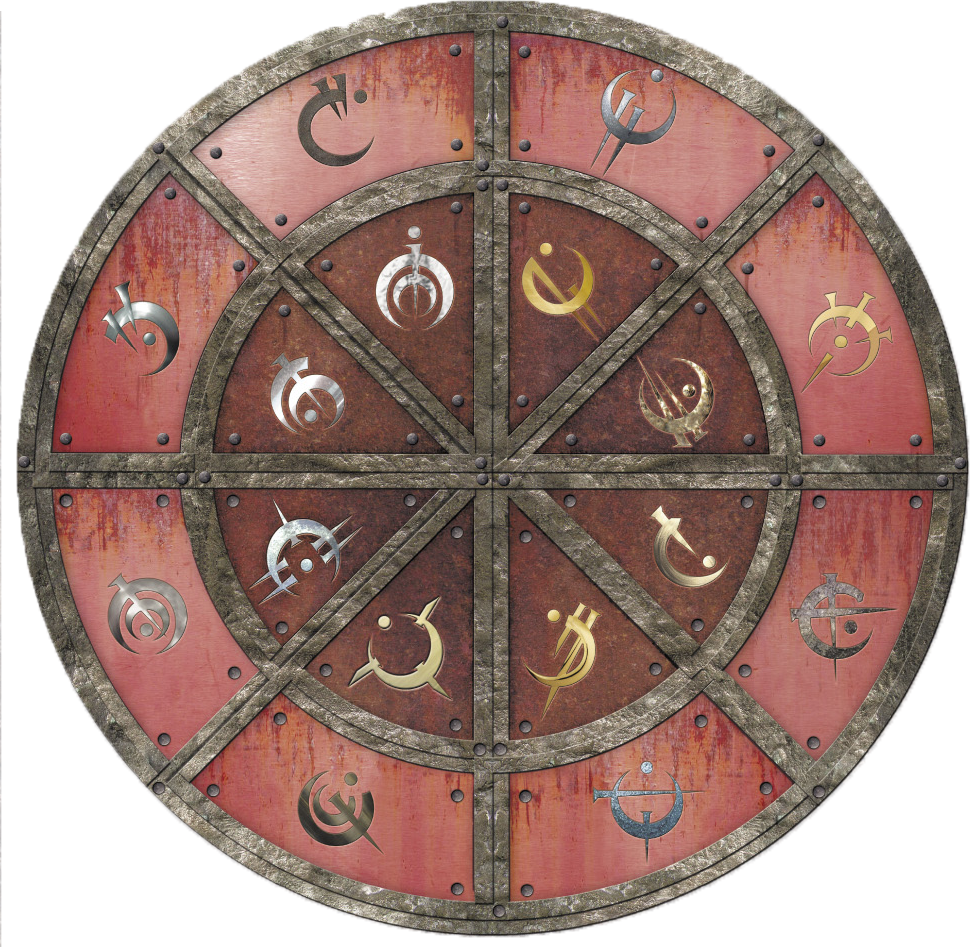
Allomantic Specialties
Mixed
These specialties affect multiple metals, and count towards the requirements of other specialties for all metals listed.
Metalstorm
Iron, Steel Requires: 11th Level, Iron 2, Steel 2
You may use your action to Flare both your iron and steel, expending five charges of each to Steelpush and Ironpull on at least fifty different metal objects that each weigh ten pounds or less to create a storm of metal.
Choose a point within 100 feet of you. All your selected metal objects are push or pulled towards it. You must move at least 10 feet sideways, relative to the target point, while pushing and pulling those objects to complete and/or maintain the metalstorm.
Metal begins spinning around and flying back and forth in a 20 foot radius around the point, dealing 10d6 bludgeoning damage to any creature starting its turn in the area or the first time it enters the metal storm on a turn. It may make a Dexterity Saving Throw against a DC of 8 + your proficiency modifier + your dexterity modifier, halving the damage on success.
The Metalstorm requires you to concentrate on it, as if it were a spell and continuously burn iron and steel. The Metalstorm lasts until the start of your next turn.
Quick Iron and Steel
Iron, Steel You may perform a single Ironpull or Steelpush as a Bonus Action. (Consuming charges as normal)
Additionally, you may make a quick and weaker Steelpush or Ironpull to avoid fall damage, assuming you have a valid target. (For example, pushing against a coin you dropped below you) Doing so does not require any type of action or charges.
Starting at 11th level, you may choose this specialty again to flare your iron or steel consuming one additional charge, allowing an additional push or pull before the end of your turn as part of the same bonus action.
Weak Push and Pull
Iron, Steel Requirement: Iron 1 and/or Steel 1, you can choose this specialty without meeting both metals requirements and it will only affect the metal you do meet requirements for. Once you meet both requirements, it affects both metals.
Through a lot of practice you’ve gained finer control of your Ironpulls and Steelpushes, allowing you to reduce the force you pull/push with by pulling/pushing in short, rapid bursts.
- You are always capable of ending a Ironpull or Steelpush before it can cause harm, even when you are surprised by its consequences.
- You can Ironpull and Steelpush with reduced force, allowing you to push or pull small objects without turning them into projectile weapons, pushing objects shorter distances than normal, or even hover in the air and control your height by changing the strength of your Ironpulls and Steelpushes.
- A weakened Ironpull or Steelpush can last until the start of your next turn, but requires your concentration as if it were a spell. You can concentrate on any number of Ironpulls and Steelpushes at the same time.
Brass and Zinc expertise
Zinc, Brass
You hone your skills with Zinc and Brass, doubling the radius you can Soothe or Riot creatures in when you try to do so in an area. This affects the ranges and radii of other specialties as well. You may take this specialty multiple times, stacking multiplicatively.
Manipulator
Zinc, Brass
You've become an expert at manipulating people’s emotions and making them more receptive to your arguments. While burning either Zinc or Brass, you make all persuasion, deception and intimidation checks as if you were proficient with them. If you already are proficient, double the proficiency bonus instead.
Additionally, you become proficient with one of those three skills.
Mind-rend
Zinc, Brass
While burning both Zinc and Brass, you may use your action to rapidly Soothe and Riot a large number of emotions in a creature within 60 feet of you that you can see, causing it severe mental stress.
The target must make a Wisdom Saving Throw against 8 + Your Proficiency Modifier + Your Charisma Modifier, or take 1d4+Your Charisma Modifier psychic damage.
Once you learn how to flare your metals, you may flare your Zinc and Brass while performing a Mind-rend, expending an additional charge of each to perform an additional Mind-rend during your turn.
Reserve
You may choose a unit of metal during a long rest to partially infuse with magic, allowing you to prepare that metal later on in only 1 minute instead of a short rest. The metal will not count towards your limit of Allomantic Metals before it's fully prepared, and it goes inert if you partially infuse a different unit of metals in this way.
Iron
Lurcher
You may use your reaction to attempt to Ironpull a projectile or melee weapon during an attack on another creature. Ironpulling a melee weapon causes the attack to have disadvantage. A projectile that gets Ironpulled is instead redirected towards you and automatically hits. You reduce the projectile attacks damage by 1d8 + your dexterity modifier + 3x your shields AC value/bonus.
When you take the dodge action, you may Flare your iron, spending three additional charges. Doing so allows you to Ironpull projectiles without using your reaction until the start of your next turn, and those Ironpulls don’t consume additional charges.
Mass Ironpull
Requires: Flaring
You may use your action to perform a Mass Ironpull. Select a cube area and Flare your iron, expending an additional charge for every five feet of length on single side of the square (minimum one charge). You Ironpull all eligible objects of your choice in that area. When determining whether the Allomancer is pulled or not, do so for each object individually instead of for all of them together; An Allomancer can easily stagger all the pulls to avoid combining the resisting force, allowing him to pull objects totalling multiple times his weight as long as each individual object is light enough.
If multiple objects were to collide with a creature, it must make a dexterity saving throw of 8 + Your Proficiency Modifier + Your dexterity Modifier or take 4d6 bludgeoning damage. Your DM may raise or lower the number of dice as he feels appropriate, and/or apply half damage on a successful save if an incredibly large amount of objects is pulled (such as a bags worth of ball bearings or caltrops).
Try not to kill yourself.
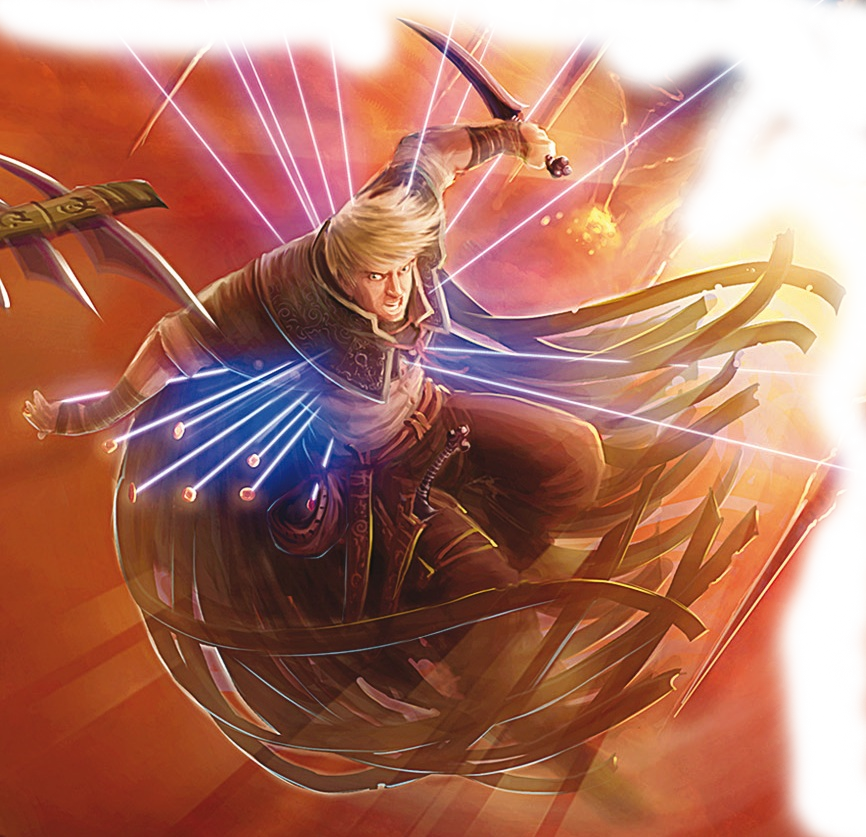
Steel
Coinshot
Requires: Flaring
Every piece of metal becomes a dangerous weapon when near an Allomancer, even something as small as a coin. Especially something as small as a coin; Such small objects become incredibly fast.
You may use your action to Flare your steel, expending three charges to push on a large number of metal objects in a one foot cube, such as a quiver of arrows or a bag of ball bearings, caltrops or coins. The objects shoot out in front of you, dealing 4d6 piercing, slashing or bludgeoning damage to all creatures in a 5 foot wide 120 foot long line in front of you. Creatures may make a Dexterity Saving Throw agains 8 + Your proficiency modifier + Your Dexterity modifier to halve the damage.
Damage type depends on the type of object; the examples listed would all be piercing due to practically being bullets, a stack of iron ingots or spoons would likely be bludgeoning, a stack of thin metal sheets would deal slashing damage, etc.
Deflect
Requires: Steel 1
You may use your reaction to Steelpush when a creature makes an attack with a metal weapon or projectile. A pushed projectile attack automatically misses, an attack made with a held weapon that is pushed automatically misses unless the attacker succeeds on a Strength Saving Throw against your Steelpush DC. On a success the attack is made with disadvantage instead.
Steel Bubble
Requires: Steel 2
You may use your bonus action to Flare your Steel, expending three charges, and continuously Steelpush on objects very close to you, not including any objects you wear or carry, in order to deflect attacks. Until the start of your next turn, ranged attacks made with metallic projectiles have disadvantage against you, and you have half-cover against attacks made with metallic weapons and projectiles.
You must concentrate on this effect as if it were a spell, and continuously burn steel.
Tin
As Far As The Eye Can See
While burning tin, you can make out details of creatures and objects up to a mile away as if you were only ten feet away from them.
Polygraph
While burning tin, you can focus and hone in on the quietest of noises and the slightest vibrations, like heartbeats.
- You gain Tremorsense out to 30 feet while burning Tin, letting you “see” things that are in direct contact with any surface you are touching. Your character may start walking barefoot, or even just have a hole for one toe to touch the ground cut into his shoes.
- You become proficient with Insight checks and add double your proficiency bonus to Insight checks made while burning Tin, by listening to even the slightest changes in heartbeats and breathing.
- Tin’s Active Effect and basic Flare can be used for Insight checks.
Sonar
Requirements: Tin 1
You may use your action to Flare your tin, expending two additional charges and allowing you to hear all sounds within a one mile radius until the start of the next turn. During this time you may try to pinpoint a certain sound, like someone's voice; If you can hear it, you know exactly how far away it is and what direction it's coming from.
Tineye
The darkvision granted by burning tin increases by 60 feet, the blindsight by 10 feet, and you get the ability to see through magical darkness while burning tin.
Tracker
You become proficient in Survival checks, and add twice your proficiency bonus to Survival checks made to track creatures, forage or perform any other activity that benefits from enhanced senses while burning Tin.
Whenever you are tracking creatures, you can tell exactly how many creatures you are tracking and their sizes.
Pewter
Abs of Pewter
Requires: Flaring
You may use your reaction when taking damage to Flare your Pewter, expending two charges and reducing the damage by 1d8 + your proficiency modifier.
Heavy Lifting
You count as one size larger for grappling, and when determining your encumberance and the amount of weight you can push, pull, lift.
Pewterarm
Requires: Level 20, Pewter 2
Pewters passive bonuses to Strength and Constitution increase by 3, to a total of 8. Speed Metals AC bonus while using Dexterity to determine your AC increases by 2, to a total of 4.
Pewter Drag
When you burn Pewter, you may forego all of the normal bonuses and enter a Pewter Drag instead, pushing your body to its limits until you complete a short rest or stop burning Pewter.
While Pewter Dragging, your speed, jump height and distance triple, you suppress any levels of exhaustion and you cannot take any actions other than the Dash or Use an Object actions, and no bonus actions or reactions. Each charge of Pewter lasts ten minutes while Pewter Dragging.
You immediately gain a level of exhaustion for Pewter Dragging and gain more if you run for too long, gaining one level of exhaustion every two hours this way. You cannot exceed six levels of exhaustion this way, and can keep Pewter Dragging even while at six levels of exhaustion.
Pewter-Dragging is great for covering a lot of ground very quickly, as it grants you incredible speed and the ability travel for over 8 hours, but travelling too far could kill you. You might want to have a resurrection or Greater Restoration spell ready at your destination, or have a ton of pewter and the Self-Preservation Allomantic Specialty.

Self-Preservation
Your body has become more used to Allomancy, unlocking Pewters healing properties the ability to burn metals even while you’re unconscious.
- You may slowly burn ten charges of pewter over the course of a short rest, doubling all hit points you regain during the short rest and losing one level of exhaustion, instead of gaining Pewters usual benefits for that time. This Pewter has to be available before you prepare new metals during the short rest, and counts towards your limit until your short rest is complete.
- If you are unconscious for a long time while still having metals ingested, your body will burn them before they cause you to become poisoned.
- Your body will try to automatically infuse a piece of pewter within five feet of you (or even inside of you) if you are knocked unconscious, taking an hour, or a minute if it is a metal affected by the Reserve specialty. If this would cause you to go over your maximum of prepared metals, your body either burns a metal of your choice you have ingested, or one metal of your choice goes inert.
- You may designate a piece of pewter in advance, such as an earring, and your body will always prefer infusing that instead. Let your allies know about this; It could save your life.
- When you fall unconscious, your body will automatically try to slowly burn Pewter, spending 1 charge every minute. If you take damage while unconscious and burning pewter, your body automatically expends an additional charge to negate 1 failed death saving throw the damage would cause.
- You have advantage on death saving throws while burning Pewter, and you regain 1 hit point 1d4 minutes after stabilising instead of after 1d4 hours.
- While not burning Pewter, if you are reduced below 1 hit point, keep track of how much damage past 0 hit points you would take and subtract that from the additional hit points burning Pewter would gain you; If there is 1 or more hit point remaining, your body will immediately burn Pewter, gaining the remaining hit points and all of Pewters usual effects. This feature still works if you do not have Pewter ingested when you take the hit but are forced to swallow Allomantic Pewter while still unconscious, potentially waking you up.
Speed Metal
Requires: Pewter 1
You learn how to take advantage of the enhanced speed Pewter gives you, gaining the following passive benefits while burning Pewter:
- You have advantage on Dexterity checks and Saving Throws
- Your speed increases by 10 feet. (even while Pewter Dragging)
- If you are using your Dexterity to determine your AC instead of Constitution, you get an additional +2 bonus to your AC.
Copper
Coppermind
Your mind and body have attuned themselves to the power of Copper.
- You become completely immune to psychic damage while burning Copper,
- You now also gain proficiency in Wisdom Saving Throws for the duration of the basic Copper Flare.
- You have greater control over the size of your Coppercloud. You may change its size during your turn (no action required) to anywhere between doubling its usual radius and making it small enough to extend past your skin, affecting only your body. This can be used together with its Active Effect, for a potential 60 foot radius Coppercloud.
Smoker
Requires: Flaring
You may use your bonus action Flare your Copper, expending two additional charges to make everyone in your Coppercloud take half damage from spells and magical effects until the start of your next turn.
Copper Wave
Requires: Flaring
You may use your action to Flare your Copper, expending two additional charges to suppress all magical effects with a duration on creatures within the Coppercloud until the start of your next turn, as if your Coppercloud were the Antimagic Field spell.
If any suppressed effects allow the creature to make a saving throw during their turn to end the effect, they may make an additional saving throw at the end of your turn as well while under the effect of this specialty.
Bronze
Seeker
You've become an expert at reading and recognizing Allomantic Pulses, even those emitted by regular magic.
You gain proficiency in the Arcana skill, and double your proficiency bonus when making Arcana checks while burning Bronze.
When you use your action to focus on Allomantic Pulses, you learn what spell school the magic effect belongs to if it belongs to one, in addition to the usual information.
You have advantage on ability checks made to find magic or interact with magical objects while burning Bronze.
Magic Rhythm
You learn to play to the beats of Allomantic Pulses, creating rather unique music.
While your Bronze is revealing Allomantic Pulses you have advantage on performance checks made to sing or play an instrument if you’re proficient with it.
You gain proficiency in the Performance skill, or double your proficiency bonus to ability checks made with it if you already are proficient.
Zinc
Confusion
Requires: Level 9, Zinc 1
You may flare your Zinc while Rioting creatures, expending four additional charges to amplify all of their emotions.
All affected creatures must make a Wisdom Saving Throw against 8 + Your Proficiency Modifier + Your Charisma Modifier or be affected by the Confusion spell.
The confusion lasts as long as you burn Zinc and concentrate on it as if it were a spell. You must also spend an additional charge at the start of your turn to maintain it.
Disruption
When a creature within 60 feet of you that you can see makes an attack roll or ability check, you may use your reaction to expend a charge of Zinc and enhance an inappropriate emotion, such as love while attacking.
Roll a d4 and subtract it from the result of your targets roll. This die changes to the allomancy die of the Rust and Ruin class feature when you get it.
Mindmelt
Requires: Level 7
You may use your action to flare your Zinc, expending three charges to Riot all of a single creatures emotions to extreme levels.
It must make a Wisdom Saving Throw against 8 + Your Proficiency Modifier + Your Charisma Modifier or take 4d6 psychic damage and fall prone, stunned and screaming. The creature takes half damage on success.
Rioter
Requires: Flaring
You may use your action to flare your Zinc, expending an additional charge, to Riot a creatures feelings of anger, rage, frustration and such, inciting aggressive behavior.
Terror Metal
Requires: Flaring
When you cause the Frightened condition through flaring your Zinc, you may choose to expend two more charges to force affected creatures to drop whatever they are holding, and on their turns they must use their action to run as far away from the nearest creature as possible while frightened, or cower in fear if they cannot see any creatures or run anywhere.
Brass
Soother
Requires: Flaring
You may use your action to flare your Brass, spending an additional charge to instantly Soothe all of a creatures emotions. You suppress the Charmed and Frightened condition until the start of your next turn on that creature. The creature immediately stops doing what it is doing, surprised by its lack of emotion. It will most likely quickly re-evaluate its actions, perhaps choosing differently. The creature does not regain any emotions until the start of your next turn and will act significantly more rationally until then.
The creature can take it’s turn as normal, and can continue doing what it was doing before if that seems like the best choice to it while no emotions are involved.
The Great Depression
Requires: Flaring
You may use your Brass to Soothe a number of creatures within 60 feet of you equal to the radius (in feet) of your Soothing action (15 if you have nothing that increases it), soothing their emotions to make them apathetic and less likely to react to events in their surroundings. You do not expend any charges on this, but you have to use your action and concentration (as if it were a spell) on your turns to do so.
The effects of this ultimately depend on the DM, but this should make guards less likely to check out minor noises, bystanders less likely to interfere in a fight or call the guards, thugs less likely to go thugging, etc.
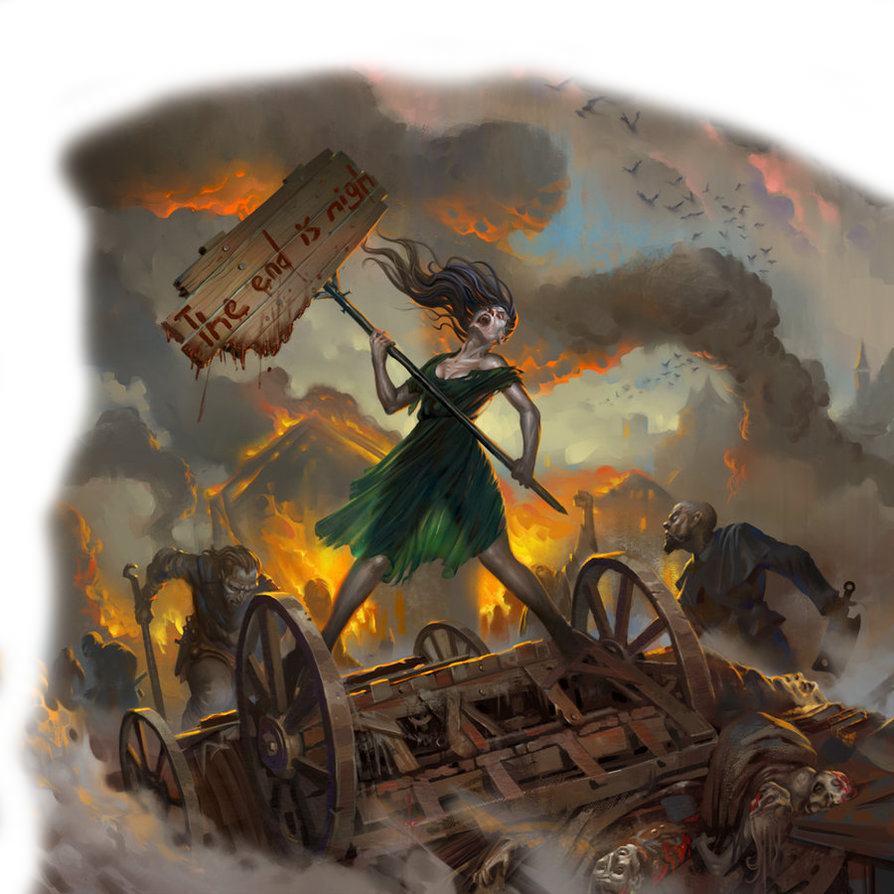
Gold: Augur
Requires: 6th Level
You may use your action to flare your gold, expending five charges. You enter a gold trance for one minute and tap into the thoughts and memories of your gold shadows, allowing you to perfectly recall any information about your past, including your surroundings at the time, such as a line from a book.
Additionally, the DM may allow your gold shadows thoughts to help you solve a problem by providing you with additional information, clues or solutions that you may have missed, or suggest different courses of actions; Multiple minds are better than one after all. The DM may ask you to make an ability check to receive such information.
Electrum: Oracle
Requires: 9th Level
You may flare your electrum, expending four additional charges, while thinking about a specific course of action you plan to take in the next 30 minutes.
You briefly see nearly undecipherable visions of the future, but manage to hold on to a general feeling about the actions you plan to take. The DM chooses what you learn, in the same way as the Augury spell. Just like the spell, attempting this multiple times without taking a long rest gives this a cumulative 25% chance to give you random results
Platinum: Seer
Requires: 14th Level
You may flare your platinum, expending five additional charges to get a brief glimpse of a future event which will happen before you finish your next short rest. The memory of it is incredibly unclear in your mind, but when it happens you will instinctively know and be able to change what happened.
Roll a d20 and note down the result. Before your next short rest, you may replace any ability check, saving throw or attack roll made within 120 feet of you by a creature that you can see with the result of this d20. You may do so after knowing whether the roll succeeds or fails, and the damage that may result from it.
Malatium: Sage
Requires: 8th Level
You may flare your Malatium when touching a Malatium shadow, expending eight additional charges. You go into a trance for a minute, during which you see visions of the past from the source of the Malatium shadow. You learn about it as if you had cast the Legend Lore spell; The target does not have to be "of legendary importance".
Aluminum: Gnat
Requires: 10th level
After burning Aluminum, you become immune to all magical effects until the start of your next turn.
Duralumin: Duraburst
Requires: 14th level
You may use your action to flare your Duralumin, expending ten charges in total while holding infusable metal. You infuse the metal with the power stored within the Duralumin, turning it into one unit of Allomantic Metal ready for immediate use.
Chromium: Leecher
Requires: 14th level
When you use Chromium to dispel a magical effect with a duration that targets a creature, such as a Haste spell or Druid's Wildshape, you may choose to have the effect apply to you instead up to it's remaining duration. You must concentrate on such an effect as if it were a spell.
Nicrosil: Enhanced Nicroburst
Requires: 17th Level
When performing a Nicroburst, you may flare your Nicrosil, spending up to a total of nine charges (Use Duralumin to bypass this limit). The next spell the target casts has its spell level increased by one third of the total Nicrosil charges used, rounded down, without requiring the use of an additional spell slot.
Note to the DM: This may be crazy
On the other hand, they are 17th+ level, they can cast ridiculous magic like Wish and Meteor Swarm, and they just used two actions to cast a single (very strong) spell through replenishable resources. When deciding whether this is OP or not, think about what else the Allomancer could've done: What is worth more, multiple attacks, a Metal Storm, some Duralumin insanity, or those extra dice on that spell?
Feel free to ban this specialty, or increase the charge cost to 4x or 5x, if it does end up being a problem.
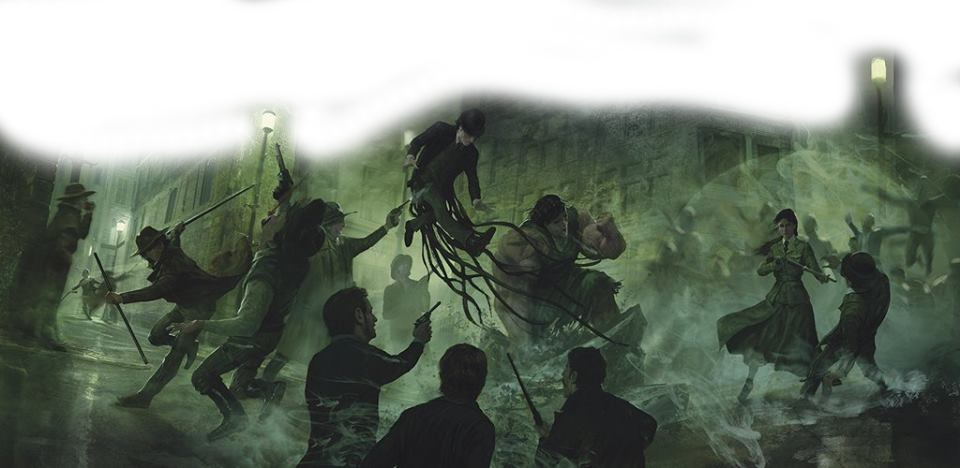
DM Extras
Foreword
This section will cover additional content and optional rules for the DM to consider, some of which may help integrate the class into the world.
Mistings
Mistings was the term used for the weaker and less rare Allomancers that could only use a single one of the metals. They all had unique names, which were used as names for Allomantic specialties here (Lurcher, Coinshot, Pewterarm/Thug, Smoker, etc.)
All Allomancers needed to “snap” before gaining access to their powers, which involves going through a very traumatic and life threatening experience; Nobles in that world (the only people who carried the allomancy genes) often beat their kids to near death early on in their life to check whether they were Allomancers. Mistborn were incredibly rare and valuable, Mistings were significantly weaker but still very useful.
Adventurers/Player characters generally qualify for having “snapped” already, since they go through life threatening scenarios on a regular basis. You (the DM) can pick whether other party members are Mistings or not, or roll for it. Decide beforehand whether party members are capable of preparing metals; If not, an actual Allomancer will have to provide them. Perhaps only certain types of mistings can prepare metals. If the party can prepare metals, they should only be able to prepare a single vial of the only metal they can use. Remember that other allomancers can try to use metals other people have prepared; Allowing the entire party to prepare metals is a significant power increase. Alternatively, you could require a spellcaster to use a 2nd or 3rd level spell slot to infuse a metal (Still stick to the “only 1 metal per character” rule)
Roll a d100 with whatever chance you want for party members to be mistings, then a d12 to determine what metal if they are a misting. You can have them roll the d12 if you want and they (out of character) know they are a misting; players tend to like rolling dice. If the players have looked at the table, you can additionally roll a d4 secretly for which method to read the table in. On a 1 read it from top to bottom, on a 2 from bottom to top, on a 3 go through odd numbers first, on a 4 go through even numbers first.
The Allomancer in the party will then have to give the other characters prepared metals until they happen to guess the correct one. Keep in mind that eating metals isn’t particularly healthy, so players may want to vomit them out if they can’t burn them…
| d12 | Misting |
|---|---|
| 1 | Iron (Lurcher) |
| 2 | Steel (Coinshot) |
| 3 | Tin (Tineye) |
| 4 | Pewter (Thug) |
| 5 | Copper (Smoker) |
| 6 | Bronze (Seeker) |
| d12 | Misting |
|---|---|
| 7 | Zinc (Rioter) |
| 8 | Brass (Soother) |
| 9 | Platinum (Seer) |
| 10 | Electrum (Oracle) |
| 11 | Chromium (Leecher) |
| 12 | Nicrosil (Nicroburst) |
The Mists
The world Allomancers/Mistborn are from was shrouded in mists every night. These were not normal mists, they sprouted out of thin air with tendrils of fog and quickly engulfed the entire world. They twisted and churned, seeming alive. They dissipated after entering buildings, although temperature seemed to have little to do with that, as the mists appeared during warm summer nights too. The mists always seemed attracted to Allomancers, visibly curling and swirling over the bodies of anyone burning metals.
If you plan on reading the books, it might be best for you to avoid the rest of this document :)
The mists were a manifestation of the power of one of the two gods of this world, the one that created Allomancy. When the world needed protection, the mists attacked humans, making them incredibly sick for a short amount of time. It only affected Allomancers, and only those that hadn’t snapped yet, the short sickness being terrible enough to cause them to snap and gain their powers. This, however, was not clear to humans.
One particular allomancer was chosen by the god to save this world, save the god itself, for the god was dying, and the god allowed the allomancer to consume the mists and burn it as it would burn metals (Since Allomancy is granted by a sliver of the gods power being passed down through a bloodline, and the mists being a manifestation of that same power, it essentially temporarily granted the allomancer full use of all powers, without the necessary metals.)
Allomancers were the only people who felt safe outside at nights, as Tin allowed them to see through the mists and Iron and Steel made travelling so easy, while one could see them flying over streets at night.
The lore blurb at the start of the homebrew states that the two old gods are long "dead" and their grasp on this world barely noticeable, with just an occasional strange mist popping up here and there rather infrequently. If you do not want to use this lore, consider changing the classes level 2 feature ("Mistborn") to something more fitting of your world, or removing it entirely: It is meant to be a cool flavor feature, not a power increase.
A World With Allomancers
If Allomancers are common in your world (Or as common as sorcerors/wizards/clerics and other spellcasters), it may have some strong influence on the culture and technology.
In the books, Allomancers were near untouchable by regular armies due to Steel and Iron. People wore no metal jewelry because anything small could be turned into a bullet, instead they wore wood painted in metallic colors. Special fighters were trained to fight Allomancers, called “Hazekillers”, using only wooden weapons and leather armor. Mistborn themselves often carried glass or obsidian daggers to use against other Allomancers.
Emotional Allomancy (Brass and Zinc, and because of them Copper and Bronze) can be incredibly influential in politics, but the Suggestion spell already exists and you’d combat emotional allomancy similar so if you took that spell into account in worldbuilding you should be fine. In a later era, there were “shops”/parlours run by Soother and Rioters where people came and paid to have their emotions altered, kind of like a emotional massage.
The importance of metals was also taken into account in the worlds language, “Rusts” being a common swear, “a bad alloy” being used as a negative description, “Rust and Ruin” being another swear. Copper being used as a term for something safe, “Zinctongue” being used similar to snake-tongue (manipulator)
God Metals
Gods of the Allomancer’s world were able to create metals as physical manifestations of their power; essentially an extension of their own bodies. Two of those metals existed in the books, listed below, which are said to have been able to be alloyed into 16 different powers of their own, although the books only included a single alloy.
You may want to use this as a plot point, or as a reward for a higher level allomancer. A consumable item in the form of a few beads of a god metal relevant to your world, granted by the god upon completing a quest for him/her. Perhaps you can allow the Allomancer to somehow create the god-metal, for a more permanent reward. Or a single use metal that permanently enhances the Allomancer’s character, similar to how other classes can get magic items with +1 to hit/damage/DCs.
God Metals in the books:
Lerasium:
10 beads of this existed, and were what created Allomancers. Anyone could burn this metal upon ingesting it, making them into a full Allomancer. All future allomancers descended from the people who burned these beads of Lerasium.
Lerasium mainly affected ones soul and magical abilities.
You could use an alloy of Lerasium (or a metal named after a god in your setting) that would burn out immediately but enhance a persons soul/body, granting a permanent effect.
- Increase to Attack Rolls and Save DCs of all allomantic effects(or just specific ones)
- Increase the amount of charges one can get out of a single use of a metal,
- Granting a non-allomancer allomancy (see the mistings section),
- Granting an allomancer another Allomantic Specialty; Perhaps alloy Lerasium with the metal the specialty is for
- Granting an increase to an ability score or HP,
Lerasium is a good replacement for +1 weapons / wand of the war mage if the Allomancer isn’t focusing on Pewter (In which case regular +1 weapons are fine; In fact, due to the additional hit bonuses from the strength bonus of pewter, the Allomancer may slightly break bounded accuracy using Pewter if given magic weapons with + to hit, similar to ranged characters with the archery fighting style and/or magical ammunition, so be careful)
One other cool feature could be allowing an Allomancer to burn a single type of metal without preparing it (i.e. be able to just swallow mundane beads of metal whenever he or she wants and be able to use its power, not having to sacrifice slots on that metal). Be careful with this one, as the strength of metals is balanced around their durations (Pewter and platinum not lasting very long, for example) and the fact that they all compete with each as the Allomancer can only prepare a limited amount of metals, which before level 9 is less than the number of useful metal available. Unlimited access to Pewter and Tin specifically may cause the Allomancer to become too powerful in non-combat scenarios.
Atium:
Well, this is awkward… I’ve renamed it to Platinum up above, it also had an alloy of itself revealed (Malatium) in the books.
Platinum and Malatium aren’t actually golds and electrums counterparts, Cadmium and Bendalloy are. I will write their effects a bit further down if you wish to use those instead of Atium/Platinum, as mentioned in the green box near their description, but their powers are a bit awkward in DnD. I've playtested them, both with the players and enemies using Bendalloy, which created a lot of unique situations, but if a player with access to Bendalloy uses it too much he might piss off the entire table OOC.
Atium was the physical manifestation of the “evil” god (Lerasium being part of the “good” god), therefore technically not a power granted by Leras. Due to Atium being so incredibly powerful for Allomancers, and being incredibly rare (only a single mine of it existed in the entire world, and the immortal “Lord Ruler” controlled it rather strictly) most of the worlds economy revolved around it. The ruling class valued Atium over everything, because it was the only thing that could save their lives against a Mistborn burning Atium as well. (Nobles were not aware of Electrum; They only knew the basic 8 metals, Gold and Atium.) Atiums connection to the god was not known; in fact, the gods existence was not known, everyone worshipped the immortal Lord Ruler, who supressed all other religions.
You may choose to rename Platinum to a fictional metal like Atium, and then let the allomancer discover additional alloys of it as item rewards. Atium and the God who created it was a scheming bastard, which is why the metal itself lets you see the future. The god itself was called Ruin. Maybe you can homebrew some fitting effects for the additional alloys.
Loot for and against Allomancers
Aluminum
The novels this class is based on, and all worlds within the same universe ("the cosmere") have aluminum as a kind of "anti-magic" metal; It is immune to most magical powers, whether its a steelpush or a lightsaber-esque sword.
The people in the Mistborn novels used tinfoil hats (which, contrary to their name, are made out of aluminum, not tin) to shield themselves from mental allomancy (Yes, this works), and the metal has been used in other novels as well to interfere with magic. It is up to you whether you want to use this in your world; If allomancers are common enemies, particularly coinshots and lurchers, your players may be happy to find some weapons and armor made out of aluminum. Or maybe they can get an aluminum box to hide magic items in from NPCs/Enemies that can detect magic.
Lerasium and God Metals
As mentioned above, a consumable metal that has a permanent effect on the allomancer can work as loot. These could be metals created by the Gods, or legendary in some other form. Scales from metallic dragons are a great opportunity.
The permanent effect could be access to a new metal; The next two chapters have some example metals and guidelines for making new metals. Or you could use those guidelines to create a metal with an incredibly powerful effect, but give the Allomancer very limited amounts of it.
I will list some example effects for metal based rewards:
Bead of Lerasium
God Metal of the Soul
Duration: 1 charge, Instant
Effect: The Allomancer immediately gains an additional Allomantic Specialty, or access to a metal he has not unlocked yet. In the latter case, he will gain the additional Allomantic Specialty when he would normally unlock the chosen metal through levelling up.
If the Lerasium was alloyed with another metal, the Allomancer may only unlock the alloyed metal or Allomantic Specialties related to it.
Lathanderum
God Metal of Birth and Renewal
Duration: 1 charge, Instant
Effect: You may use your action to touch a dead creature and burn this metal. You instatly cast the Raise Dead spell on the creature.
Alloys of this metal could have healing properties, consider giving the Allomancer "Malathanderum" instead of healing potions, allowing those metals to be used like the Cure Wounds spell on himself OR others; Allomantic Metals can never do both.
Ilmaterum
God Metal of Endurance
Duration: 1 charge, Instant
Effect: The Allomancer's current and maximum Constitution permanently increase by 2.
Metallic Dragon Scale
Copper, Gold, Brass and Bronze Dragon Scales be infused just like their respective metals and have the same effects when burned, except that one unit of Allomantic Dragon Scales has three times as many charges as the regular metal.
Leirum
God Metal of Illusion
Duration: 1 charge, Instant
Effect: Burning this metal permanently allows the Allomancer to cast the Disguise Self spell at will, without requiring verbal, somatic or material components.
Khrissalium
God Metal of Magic
Duration: 1 charge, Instant
Effect: Burning this metal grants the Allomancer a permanent +1 bonus to all attack rolls made with Steelpushes and Ironpulls, and increases the save DC of all Allomancy induced effects by 1.
Hoidinium
Metal of the Wanderer
This small piece of metal is completely black and always in the form of a triangle. When observed closely, there seem to be strange fractal patterns moving across its surface.
Duration: 1 charge that lasts until the effect is complete.
Effect: While burning this metal, you feel drawn to a location of your DMs choice, which is guaranteed to have something of interest to you going when you arrive there, or shortly afterwards. The metal will lead you to your destination down a path that is as short and safe as possible, and it will even lead you to NPCs that will help you reach the destination, such as ferrymen.
The metal cannot be extinguished and it isn't consumed until you reach your destination. This metal cannot poison you for having it ingested for too long.
Sandersum
God Metal of Creation
Staring at this metal for too long makes you believe you are seeing strange, alien worlds within the metals constantly shifting colors and patterns.
Duration: 1 charge, Instant
Effect: Burning this metal immediately grants you an Ability Score Improvement.
Items
Here are some sample items for your Allomancers; Alter them as you see fit.
Shield of the Nibbler
Shield, Rare
An old iron shield that looks like it has had a tough life, and has the symbol of Allomantic Iron imprinted in it. The shield seems to automatically infuse itself with a small amount of magic.
Once per long rest, you may take a bite out of the shield as a bonus action, ingesting one unit of Allomantic Iron. If you attempt to bite it again before your next long rest, it will feel just like biting into actual metal, unlike the first time when it was nice and soft, like rusty cake.
The shield can consume powdered iron during a long rest to regrow parts that were bitten off.
Coin of Returning
Uncommon, Requires Attunement
An old steel coin with the symbol of allomantic iron imprinted on it, for some strange reason.
If the coin is not in your possession at the start of your turn, as long as you are on the same plane of existence, it will take the shortest possible path to you, harmlessly landing on your belt and staying magically attached to it until you remove it.
It will avoid all creatures and obstacles on the way, moving up to 500 feet in one turn.
The coin can be swallowed and burned as if it were a unit of Allomantic Steel. This permanently destroy the coin.
Band of Mourning
Ring, Legendary, Requires Attunement
This ring is said to have belonged to the first Allomancer ever, a man whose name was lost to history and now only known as "Lord Ruler". The strange alloy this ring is made of still carries the magical energy from ancient times.
While wearing this ring, you gain a +3 bonus to hit and damage with attacks made through allomancy, such as steelpushes, ironpulls or pewter enhanced weapon attacks, as well as to the save DC of all allomantic effects.
You may swallow this ring, permanently destroying it and granting you a unit of all sixteen Allomantic Metals.
The Alloy of Law
Artifact, Rare
A strange metallic construction that is roughly L shaped. The shorter end fits perfectly in your hand. The longer side is a long, hollow metal cylinder that connects to another thicker cylinder above the shorter end. The thick cylinder has six holes in it that can be lined up perfectly with the long section. Inside the corner of the L shape is a pin within reach of your index finger while you're holding this object, pulling it rotates the thicker cylinder so that the next hole lines up with the hollow of the thinner cylinder. On top of the thin cylinder are markings that help you perfectly line up the entire length of the object with your eye.
You quickly realize you can fill the six holes of the thicker cylinder with metal beads and steelpush them out of the longer, hollow bit, using the pin to rotate the next bead into position.
Using this contraption greatly increases your accuracy. You gain +2 to hit when attacking creatures by steelpushing pieces of metal out of this object.
Ring of Hathshin
Ring, Very Rare, requires attunement
A simple steel ring with a number of thin, long scratch marks.
While wearing this ring you gain a +2 bonus to hit and damage with attacks made through allomancy, such as steelpushes, ironpulls or pewter enhanced weapon attacks, as well as to the save DC of all allomantic effects.
Quicksilver Amulet
Amulet, Very Rare, requires attunement
A silvery amulet with the symbols of Allomantic Steel and Iron on it.
While wearing this amulet and using the standard Flare effect of iron or steel, you may make expend one more charge than normal for a third steelpush or ironpull.
Seekers Talisman
Amulet, Rare, requires attunement
While wearing this amulet, the range of your darkvision granted by Tin, Metalsense and Allomantic Bronze increase by 60 feet.
Gambler's Coinbox
Uncommon
A small wooden box. When shaken you can hear the sound of a small object rattling around in it.
You may use an action to shake it and speak its command word. A panel on its front will open, revealing a metal coin. Roll a d12 and consult the Mistings table to determine what Allomantic Metal the coin is made out of. The box won't produce another coin until you finish a long rest, at which point any coins it has created disintegrate.
You may swallow and burn the coin even if you do not have its metal unlocked yet.
Cadmium and Bendalloy: The Real Temporal Metals
If you want to stay completely true to the books canon, Cadmium and Bendalloy are the actual temporal metals, whereas Atium (renamed to Platinum) and Malatium are actually God Metals. The reason I’ve switched those around are because Atium is mistakenly believed to be the temporal metal in the original trilogy, and more importantly Cadmium and Bendalloy disrupt the turn order, potentially making combat very annoying for the entire group, and maybe even completely overpowered. An Allomancer burning Bendalloy can essentially walk up to any creature and trap them in a speed bubble, then proceed to 1v1 them in the area of massively accelerated time while the rest of party gets to watch (And technically all they get to see is a blur), so burning Bendalloy is almost guaranteed to make you that guy. Some parties however may not have a problem with this, and perhaps in practice the 1v1s may end up too dangerous to actually try, as the Allomancer has to use his action to initiate it and individual creatures may be too strong for individual PCs. I have playtested Bendalloy a little bit and definitely recommend at least considering using it if you trust your player not to be that guy as it opens up a lot of combos the party can perform, and a lot of great moments in DnD come from weirdly combining mechanics to make ridiculous things happen!
If you wish to use Cadmiun and Bendalloy instead of Atium(Platinum) and Malatium, metals are unlocked in this order from levels 6-9 instead of what it says on the table at the start:
-
- Cadmium
-
- Bendalloy
-
- Gold
-
- Electrum
If you are worried about Bendalloy being too strong in those early levels, replace Cadmium and Bendalloy with Chromium and Nicrosil.

Cadmium
External Temporal Pulling Metal
Duration: 30 charges, 10 minutes per charge
Active/Passive Effect:
You can use your action to create a bubble of stretched time in a 30 foot radius around where you stand, significantly slowing time for everyone in the bubble. For every 10 turns (1 minute) that passes outside the bubble, one turn (6 seconds) passes inside of it.
The bubble is stationary, unless it is created on an object weighing over 5,000 pounds (Like a ship, train or planet) in which case it stays centered on the spot it was created on relative to that object.
The bubble disappears if you leave it.
Objects entering or leaving the bubble refract, changing direction unpredictably. The bubble provides three quarters cover against and disadvantage to any attacks that pass through its edge.
Due to the time difference in and outside of the bubble, it is impossible to cast a non-projectile spell into it from the outside, and projectiles fly off target like objects. For projectile spells with an area effect targetting a point, roll a d10. The projectile impacts a point 5 x The d10s result away from where it left the bubble, in the direction the upper end of the d10 is pointing. Use the lower end if the upper end points back into the bubble.
If a creature is partially outside of the bubble when it is created, it will instinctively try to move its entire body out (or in if out isn’t possible) without attacks of opportunity. A creature is always considered to be fully in or out of a bubble.
Cadmium and Bendalloy bubbles overlapping negate each other.
Flare: None

Bendalloy
External Temporal Pushing Metal
(aka Cerrobend, Wood's Metal)
Duration: 10 charges
Active/Passive Effect:
You can use your action to create a bubble of compressed time in a five foot radius around yourself. For every 10 turns (1 minute) that passes inside the bubble, a single turn (6s) passes outside of the bubble.
The bubble is stationary, unless it is created on an object weighing over 5,000 pounds (Like a ship, train or planet) in which case it stays centered on the spot it was created on relative to that object. The bubble disappears if you leave it. Objects entering or leaving the bubble refract, changing direction almost unpredictably. The bubble provides three quarters cover and disadvantage against any attacks that pass through its edge.
From the outside, any significant movement inside the bubble will look like a blur, and minor movements (such as lips moving when speaking) will likely go unnoticed. Sound is compressed to a pitch beyond most creatures hearing range.
Objects, like melee weapons and projectiles, passing through the edge of the bubble follow the same rules as for Cadmium.
If a creature is partially outside of the speed bubble when it is created, it will immediately instinctively move out of the bubble without provoking attacks of opportunity. A creature is always considered to be either fully in or out of a bubble.
Cadmium and Bendalloy bubbles overlapping negate each other.
Flare: None
Creating a new Allomantic Power
If you want to give an Allomancer a reward that isn’t a consumable, but also not a “boring” baseline buff like those described under Lerasium, you could have a lerasium alloy / similar metal that is burned shortly to grant a permanent power, which allows the Allomancer to prepare a new metal. Silver is a good choice for the metal, and you can decide what sort of power it has.
Keep in mind there are patterns to Allomantic power: The base metal can always be abstracted to be “pulling” something in some form, the alloy “pushing”, and they both either affect the Allomancer (“Internal” metals) or are “external” metals, affecting other people or objects. Usually there is a second pair of metals to fill out a group of 4 (External Pulling, External Pushing, Internal Pulling, Internal Pushing) which follow a specific theme (the first 12 regular metals included in the allomancer class being divided into Physical, Mental and Temporal)
Of course, you’re free to ignore these “rules” entirely if you just want to make a single cool power, these are just here in case you wanted to create a proper group of metals that fits in with how things already work.
Example Group: Fire Metals
Silver
Internal Fire Pulling Metal
Duration: 120 charges, minimum 1 per minute
Passive Effect:
Burning Silver heats the body, making you resistant to Cold Damage. You burn 1 charge of the metal for each point of cold damage prevented this way, as well as one charge per 20 degrees celsius under 20C for every minute you use this to keep yourself warm, minimum of 1 charge/minute
Flare:
You become immune to Cold Damage instead, but burn 2 charges per point of damage prevented. You do not need to use any type of action for this.
Sterling Silver
Internal Fire Pushing Metal
Silver Alloyed with copper
Duration: 120 charges, minimum 1 per minute
Passive Effect: Same effect as Silver, but reducing body heat instead, granting resistance/immunity to fire, and for the passive cooling it is one charge per minute for every 50 degrees above 0C, rounding up.
Creatures touching you take half of any fire damage you prevent as you expel the heat from your body.
Palladium
External Fire Pulling Metal
Duration: 10 charges
Passive Effect:
You gain heat vision, allowing you to see the heat of creatures, objects and the air, even of things invisible to you. 1 foot of stone, 1 inch of common metal, a thin sheet of lead, or 3 feet of wood blocks this vision.
You get the ability to draw heat into an object or creature you can see, dealing fire damage and setting objects that aren't being worn or carried on fire. Your target must make a Constitution saving throw against a DC of 8 + your proficiency modifier + your charisma modifer, or take 2d4 + your charisma modifier fire damage.
Rust and Ruin increase the damage dice of this effect.
Flare: You may expend two additional charges to triple the amount of damage dice.
Alternatively, you may expend six additional charges to cast the Fireball spell, without any verbal, somatic or material spell components, and with no projectile.
White Gold
External Fire Pushing Metal
Palladium+Gold+Nickel
Duration: 10 charges
Passive Effect:
You gain heat vision, allowing you to see the heat of creatures, objects and the air, even of things invisible to you. 1 foot of stone, 1 inch of common metal, a thin sheet of lead, or 3 feet of wood blocks this vision.
You get the ability to draw heat out of an object or creature you can see, dealing cold damage and freezing objects that aren't being worn or carried. Your target must make a Constitution saving throw against a DC of 8 + your proficiency modifier + your charisma modifer, or take 2d4 + your charisma modifier cold damage.
Rust and Ruin increase the damage dice of this effect.
Flare: You may expend two additional charges to triple the amount of damage dice.
Alernatively, you may expend six additional charges to cast a modified version of the Fireball spell, dealing cold damage and freezing objects instead of fire damage and burning, without any verbal, somatic or material spell components, and with no projectile.
Allomantic Specialties
Create Allomantic specialties similar to Quick Iron and Steel to allow using Palladium and White Gold as a bonus action, and specialties such as Metal Storm and Confusion to allow the casting of Wall of Fire, Cone of Cold and Investiture of Flame and -Ice
Hemalurgy
Hemalurgy was another type of magic in the books, one which can be transferred to DnD somewhat simply, but its best used as a plot tool rather than giving it to players. It is a somewhat evil type of magic, so even if your players have access to it they might not be willing to use it.
In essence, Hemalurgy revolves around using metal to transfer a power from one person to another. The metal objects are called “Hemalurgic Spikes”. They are practically huge nails. You stab someone with it, and then place it in another creature. Every moment the spike spends outside of a body/blood its power significantly decays.
Different metals steal different attributes, and how many spikes are used and where they are placed can have additional effects. Generally, placing a Hemalurgic Spike will not kill; The body will heal and adapt to it, even if you stab someone through the heart or the eye (In fact, the most frequently shown use of Hemalurgy in the books was to create Steel Inquisitors, who were easily identified by having spikes shoved through their eyes which even broke out of the back of their skull, their eye sockets essentially filled with the head of the nail-like Hemalurgic Spike)
| Metal | Features Stolen |
|---|---|
| Iron | Abjuration and Transmutation Magic |
| Steel | Physical Allomancy |
| Tin | Senses |
| Pewter | Strength |
| Copper | Memory and Intelligence |
| Bronze | Emotional Stability and Fortitude |
| Zinc | Enchantment and Illusion Magic |
| Brass | Mental Allomancy |
| Aluminum | Evocation and Necromancy Magic |
| Duralumin | Enhancement Allomancy |
| Chromium | Overlaps two souls; all powers available to both are locked |
| Nicrosil | Overlaps two souls, all powers available to the origin are unlocked |
| Gold | Conjuration and Divination Magic |
| Electrum | Temporal Allomancy |
| Platinum | Physical Speed |
| Malatium | Mental Speed |
Canon knowledge of hemalurgy is incomplete; The table above is what I used for my own campaign, which includes some powers being rearranged to fit some patterns like with Allomancy (I couldn't see the logic/patterns the author came up with and he hasn't revealed everything yet), and Nicrosil and Chromium having "weird" effects - Change those two to suit your needs.
People who have Hemalurgic Spikes in them are more susceptible to mental manipulion through things like Zinc, Brass and Telepathy due to cracks in their soul; you may want to impose disadvantage on saving throws against such effects. A creature with more than 1 spike ends up completely under an Allomancers control if he tries to soothe or riot the creature while burning Duralumin, and remains in control even after the metals burn out (Should remain in control until someone else does the same. If the Allomancer is not concentrating the creatures do keep some free will) You can have a similar effect through magic; perhaps charm/mind altering spells cast at 6th level or higher.
This is best used as a plot device in your campaign rather than allowing players to use this. If the players do end up using this, feel free to treat it like a cursed item, perhaps an evil god takes advantage of the cracks in their soul to drive them towards evil deeds and, if enough spikes are inserted, take complete control of the character when needed.
Giving a creature an ability it already has through hemalurgic spikes enhances that ability; You can choose to grant an Allomantic Specialty related to the transferred metal power for example, perhaps a Warlock Invocation or other class feature for a transferred magical power, or larger dice or some other improvement to the feature.
I've used this system in my campaign to transplant powers from one creature to another. I had wolves that were able to go invisible, cast Hellish Rebuke and had fire breath attacks. I also had a boss encounter that I called the Hydravern. Don't you love it when your players cut off a Wyvern's tail and two more sprout out?
I use the most appropriate magic stealing spike for stealing natural powers, such as Aluminum for regeneration and dragon's breath attacks.
Feruchemy
Feruchemy is the last type of magic from the books, one which does not mix well with Dungeons and Dragons. Feruchemy is about storing attributes (Such as Strength, Speed, Health, Memories, Determination) in pieces of metal (usually jewelery) and then withdrawing it later. While storing the attributes, you physically lose them (And your body adjusts as necessary, storing strength for example makes you actually lose muscle mass. Withdrawing/”Tapping” strength turns you into the Hulk, so Feruchemists tend to wear loose clothes). This is obviously problematic in DnD because the strength of the character depends entirely on how much downtime the character has, and since we’re not fully emulating real life in this game storing attributes is significantly less problematic than in the books.
If you find this type of magic interesting though and want to make an NPC using it, here’s a link to a wiki page of it.
Feruchemy is significantly simpler mechanically than Allomancy, so you should have no trouble converting it to a D&D character. Just read the attributes in the table: That is what can be stored, and generally any amount can be withdrawn at once.
Changelog
v1.1, 2nd of July, 2018
- Pewters damage reduction is no longer capped, affects poison, grants advantage versus poisons and supresses the poisoned condition while active. (The poison changes are more for thematic purposes than balance. The damage reduction cap was implement shortly before posting the first version, thinking that straight damage reduction might be too strong at low levels. After playtesting it feels unnecessary, and the damage cap just makes the feature feel really bad. The d6 hit die is already a big enough penalty for having access to pewter.)
- Pewters bonus action dash is now a Flare effect, requiring two charges, replacing its previous flared dash. (Being able to dash as a bonus action is pretty strong, and it having such a low cost compared to monks felt a bit unfair. And then being able to double-dash as an action made Allomancers insanely fast; which is cool but a bit too much... Let's let monks and rogues be faster, or at least equally fast)
- The Weak Iron and Steel specialty had its wording fixed; It now clearly states that the Allomancer can make all pushes and pulls harmless, instead of just pushes and pulls that would harm the Allomancer specifically.
- Tin's passive effect now states that it lets the Allomancer process information a lot faster, which was lightly implied before but probably unclear to people that haven't read the novels.
- Removed mentions of the Heavy Metal and Death Metal features; Those were removed before I posted the pdf, but still referenced in 3 places (Heavy Metal and Death Metal were rolled into Rust and Ruin; They were the d6 and d8 respectively. Having the dice changes be single class feature was cleaner.)
V1.2, 14th October, 2018
- Zinc and Brass now last a full minute per charge. Brass' flare costs three charges, up from two.
Zinc and Brass felt pretty awful in practice; It was nearly impossible to have either burning throughout a conversation, since conversations tend to last longer than 2 minutes. Their basic effects just couldn't live up to what they were supposed to do without dedicating your entire loadout to one of the two metals, and then you'd barely make it through a single conversation before having used up all your resources, which isn't the case for using other metals for utility / RP.
V1.3, 6th June, 2019
Pewter Specialties
- Abs of Pewter's cost to 2 charges.
- Speed Metals speed bonus reduced to 10 feet, and it no longer grants another reaction.
Platinum
- It's previous active effect is now listed as a flare effect and the option to add half the result to your AC was removed.
- The pseudo-legendary action flare was removed.
- Platinum's "New" active effect is the ability to take a 2nd reaction (i.e. the additional reaction now costs 1 charge).
While 4 charges on a single unit of platinum was very restrictive, turns out preparing multiple units made the allomancer about as powerful as they are portrayed in the books, which is a bit much for level 7...
V1.3.1, 16th November, 2020
- Changed the wording on Coppermind, giving the Allomancer full control over the size of the Coppercloud.
- Changed the wording on Copper Wave to imply its effects are lost when leaving the Coppercloud.
- Reworded Duralumin to explicitly state the extra charges are split between active effects only, not any passive effects.
Art Credits
Cover Image - Manuel Castañón
Final Empire and Well of Ascension Book Covers by Chris McGrath
Survivor of Hathshin by rmassarani
Vin by Mary Haney
Coinshot - Mistborn Adventure Game
Pewter Drag - Dave Rapoza
Riot by Firatsolhan
Mistborn Era 2 spanish book covers by Triptych
Allomancy Table by Isaac Stewart
Almost all class mechanics are taken directly or adapted from the Mistborn novels by Brandon Sanders, which I highly recommend you read!
The first Mistborn trilogy consists of The Final Empire, The Well of Ascension and The Hero of Ages.
More Credits
The Coppermind wiki from the 17th Shard has helped me learn a lot more about Allomancy and served as a great reference while making this homebrew.
Brandon Sanderson of course for writing all these amazing books, I highly recommend reading all of them if you enjoy unique, well thought out worlds and magic systems. The Final Empire is the starting point for Allomancy, The Way of Kings for the Stormlight Archive series - which I believe is more popular - and he has Warbreaker available for free on his website.
Allomancy Symbols - Hosted by the Blades and Beasts wiki, some may have been edited slightly. Originals are property of Brandon Sanderson / Tor, used for his novels.
Maity Euschen: For writing all this stuff, totally awesome guy, and no I'm totally not praising myself here.